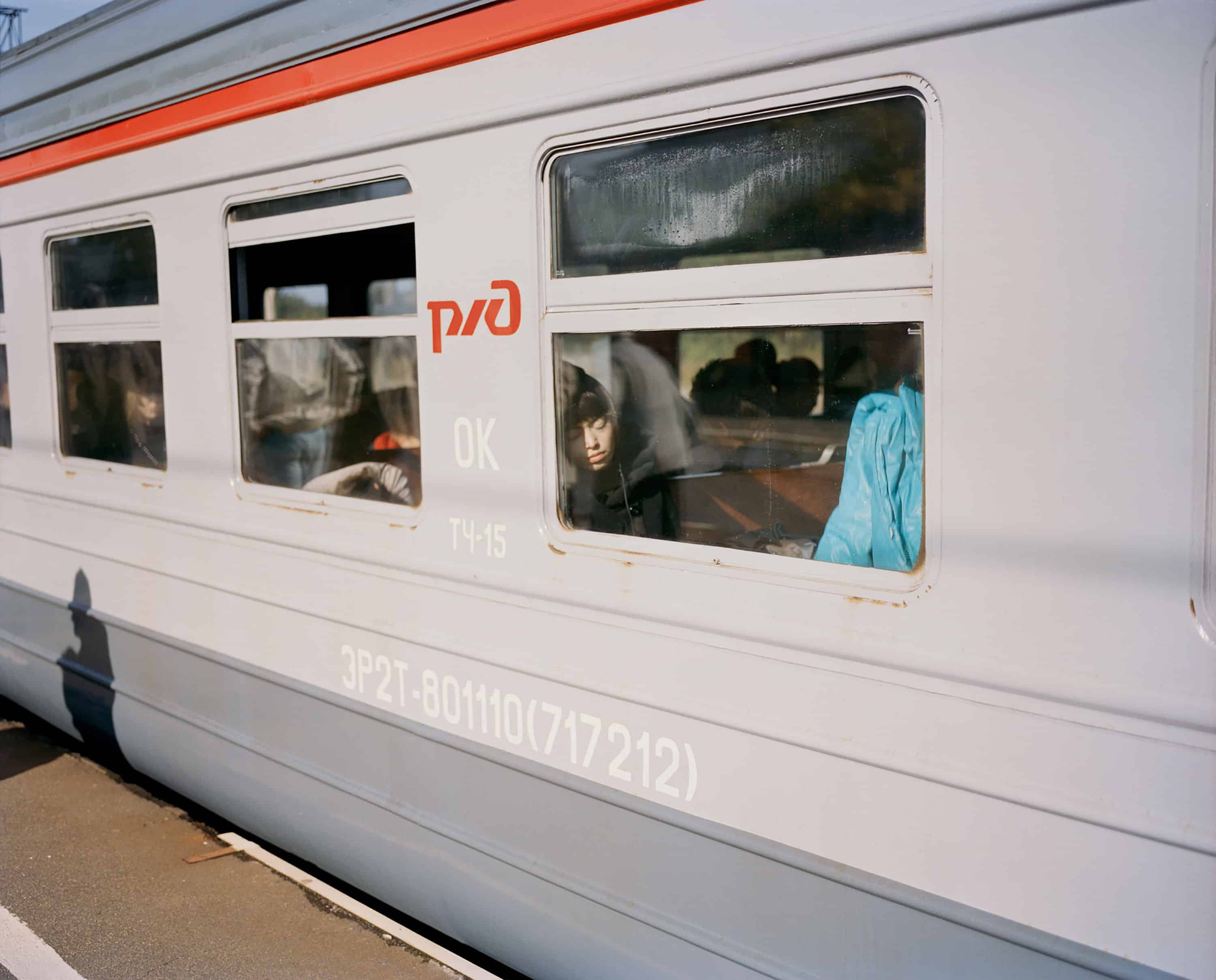Interview 037 • Jan 7th 2016
- Interview by Lou Noble,
- Sasha Arutyunova Photographed by Michelle Watt/Chris Buck
About Sasha Arutyunova
Sasha Arutyunova is a Moscow-born, Brooklyn-based freelance photographer. The primary focus of her work is the exploration of personal narratives through intimate detail, by way of photography and short form video. Sasha is a co-founder of documentary production company and artist collective Nomadique, for which she serves as a producer, curator and community organizer. She has also served as a camera operator and photographer for audiovisual collective Mason Jar Music since 2010. Her work has appeared in The New York Times, Time Out NY, Le Monde and DETAILS. Her Instagram account won her free cupcakes for a year.
Links
Foreword
With the quiet touch of a gentle observer, we were instantly captivated by Sasha's body of work. The heart behind these images instantly transport the viewer into the frame, and allow them to create their own story within the piece. A lot of Sasha's thoughts on photographing people resonated with us, hope y'all feel the same way.
This interview has been edited for clarity and content.
Interview
So let’s begin.
Let’s do the thing.
You ready?
Yeah, I’m ready. I’m as ready as I’ll ever be for something like this.
Okay, this will be very painless, I assure you…physically speaking. You will experience no physical pain.
Great emotional distress though.
Entirely possible! So, how did you get started?
I…it’s funny, I’ve been asked this question before and I seem to have a really hard time with factual detail. This happened before, but I think I can get it this time. I started shooting when I was around 14, I got a camera from my grandpa, I think, it was a 3 megapixel little guy. I was super excited, and I took a trip to Armenia with my dad, which is where he’s from, I took a lot of photos and then came back and posted them online and started to get nice feedback from people being super sweet, and helpful, you know, and encouraging. So then it became kind of this secret, well, not that secret, but this little passion of mine that I would toil away at whenever I had the time. And then I would show work at school, and my teachers (Victoria Englehart and Roger Smith) would be incredibly motivating and excited, because I think they were happy that they had some student that was really obsessed with something. So yeah, the combination of kind of online support and support from mentors at school, you know, kind of propelled the craze.


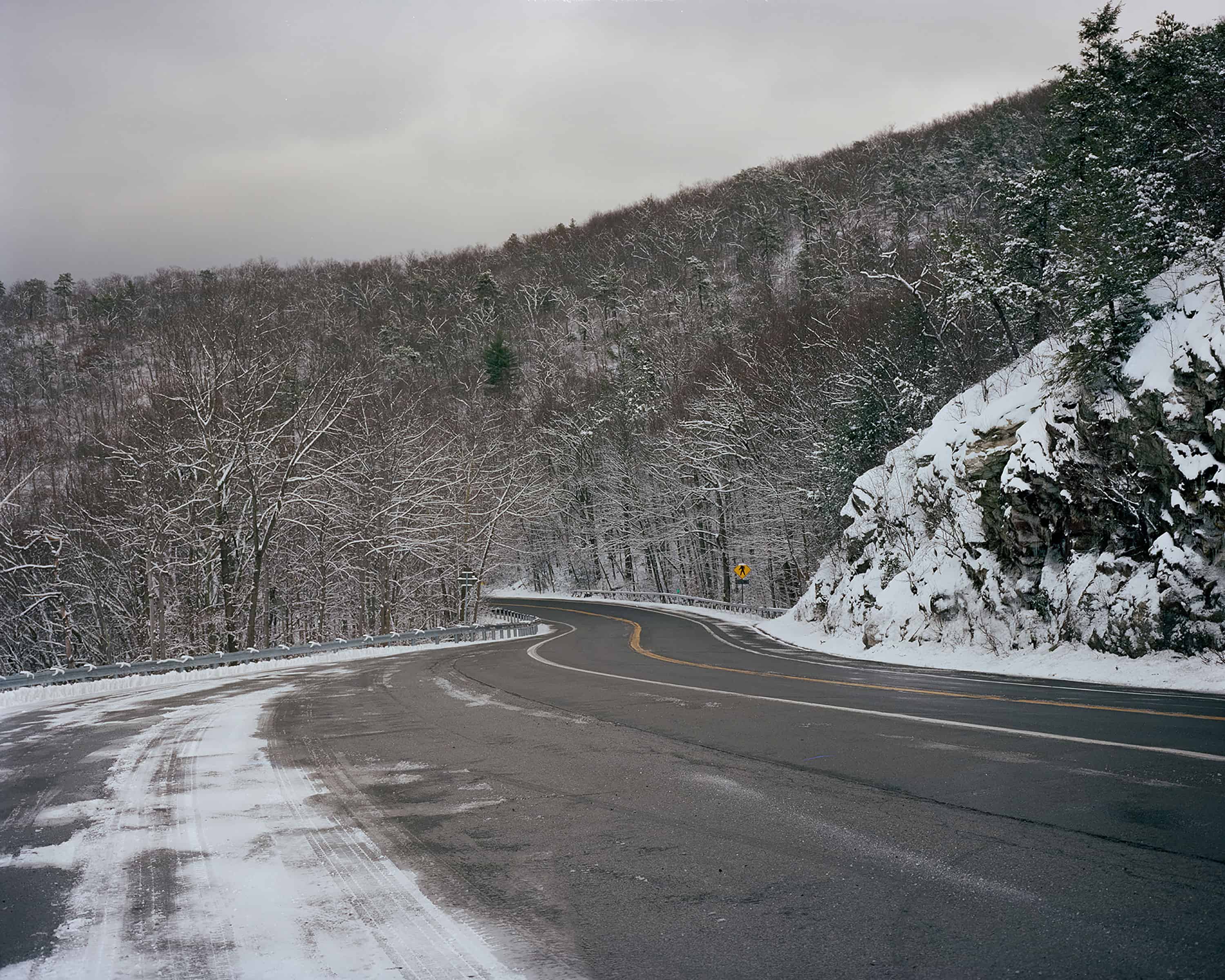


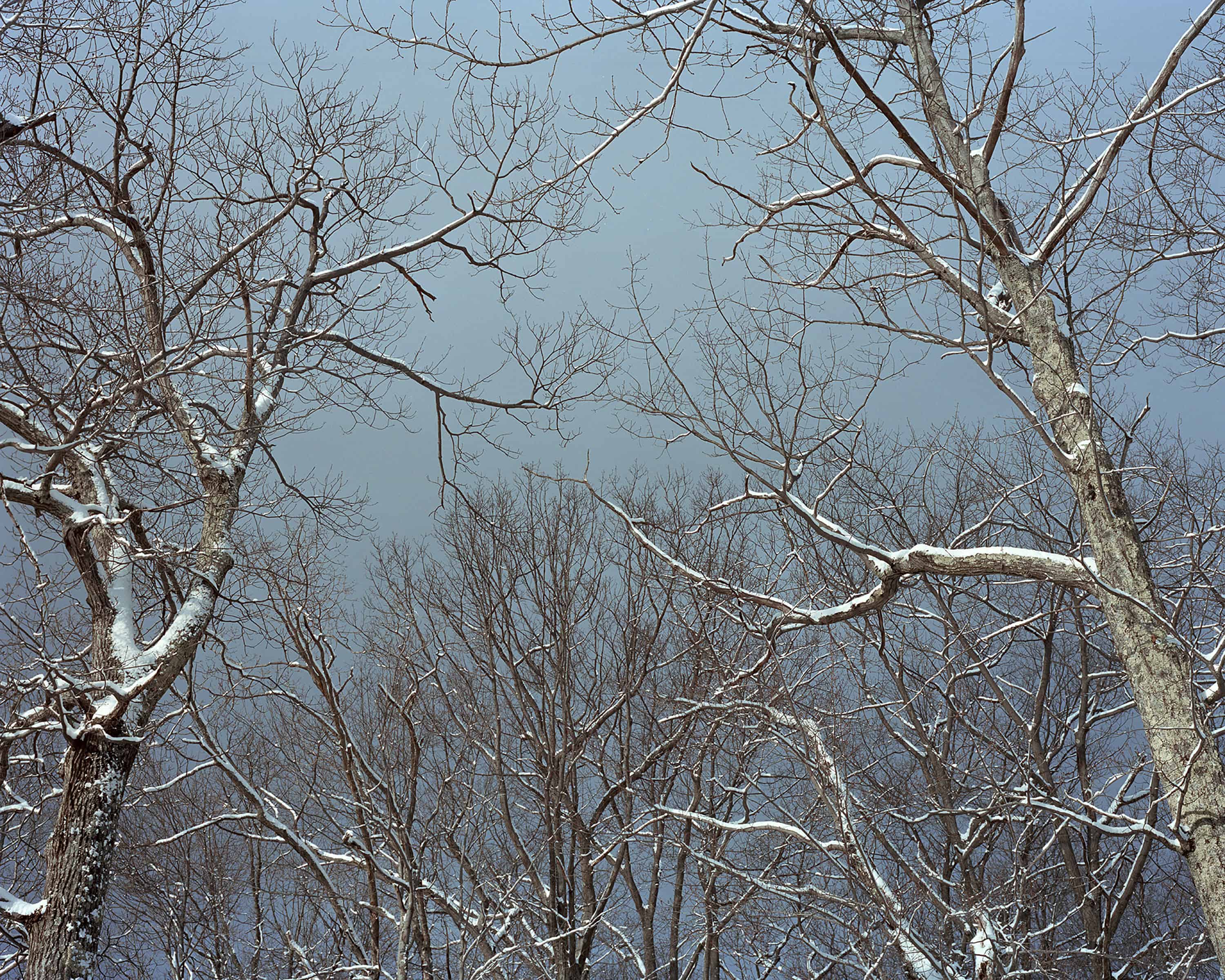

What was it that made you decide on it for a career?
It didn’t really make sense to do anything else. It was…I don’t know, it was kind of the only option! There wasn’t anything else that I was interested in, so it didn’t seem like…there wasn’t really a moment of deciding. It was just kind of, “well…I need to go study photography, so what schools do I go to.” My mom was interested in me considering advertising or journalism, something like that. But NYU didn’t have an advertising department and I didn’t want to be a journalist, so that pretty much settled it. It has always been the only option, which is kind of crazy, and now I’m curious if that will…I’m sure that will change, and it has changed in some ways since then, but early on, it made it pretty easy, albeit terrifying.
Were there photographers you looked to at that point that you wanted to emulate in terms of their career? Success?
Yeah! I remember when I was little, when I was a teenager, my first photography book that I ever bought was a book by Abelardo Morell. He was the first photographer that I found on my own, nobody told me about him, and I was so excited to have a person that I really liked and that I was inspired by. At the time for me, he did really exciting things with shadows and his camera obscura work. But I think it was more about finding a person that I decided that I liked, for myself, you know? And then there were a lot of people online that I looked at that I don’t remember anymore, but it was a lot of internet, looking for work, and sitting in book stores and stuff when I was a kid.
What site were you putting photos on?
I was using Flickr, DeviantArt, things that people don’t use anymore that people were really, really into. You know, whatever, fifteen years ago. Yeah, and it’s funny how…I’m interested in how a site like Flickr would be really big for a decade, and then kind of slowly disappear, so I’m curious how, what things now will kind of go the same route that we think are so set in stone, and the way that we communicate is really…yeah.

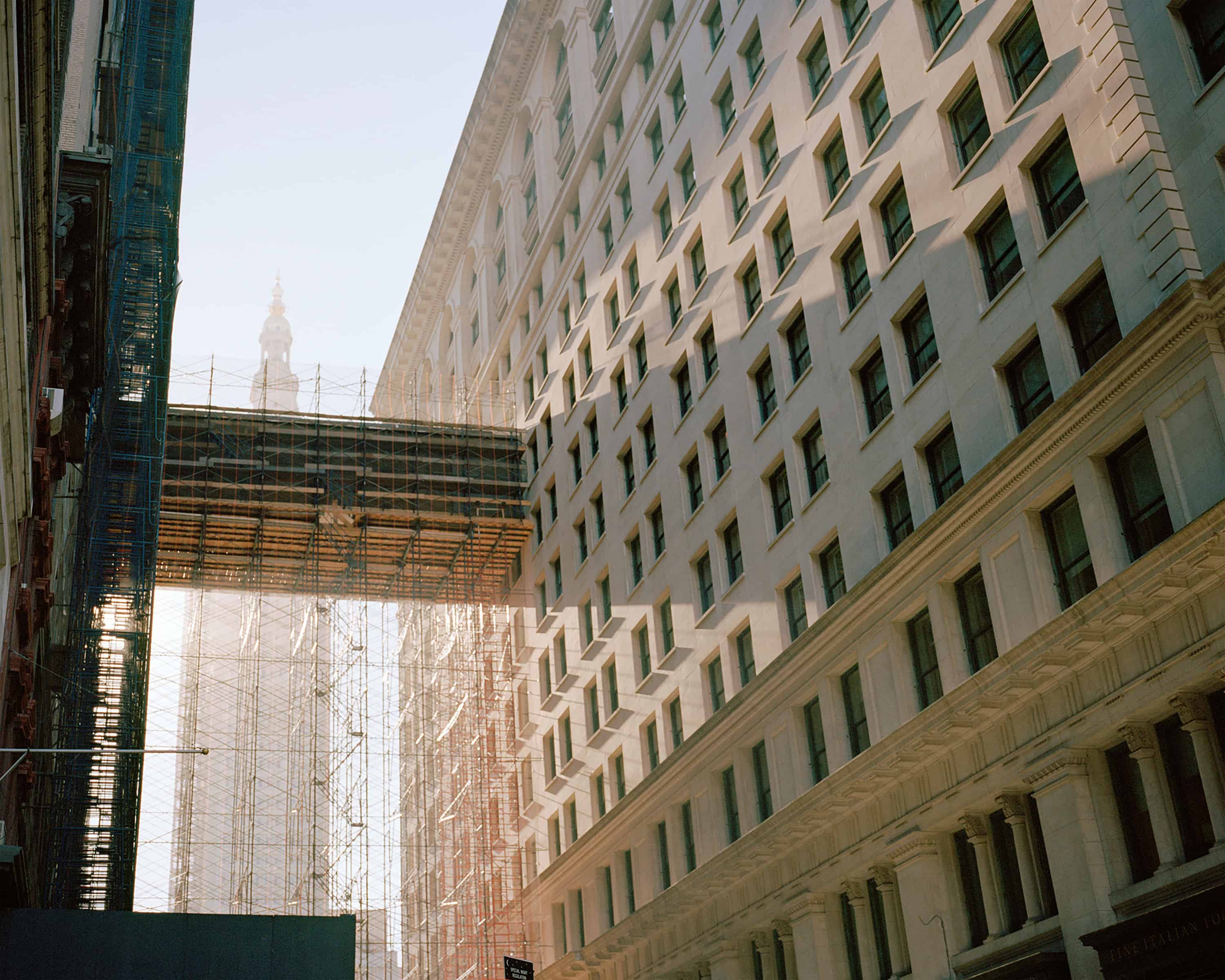


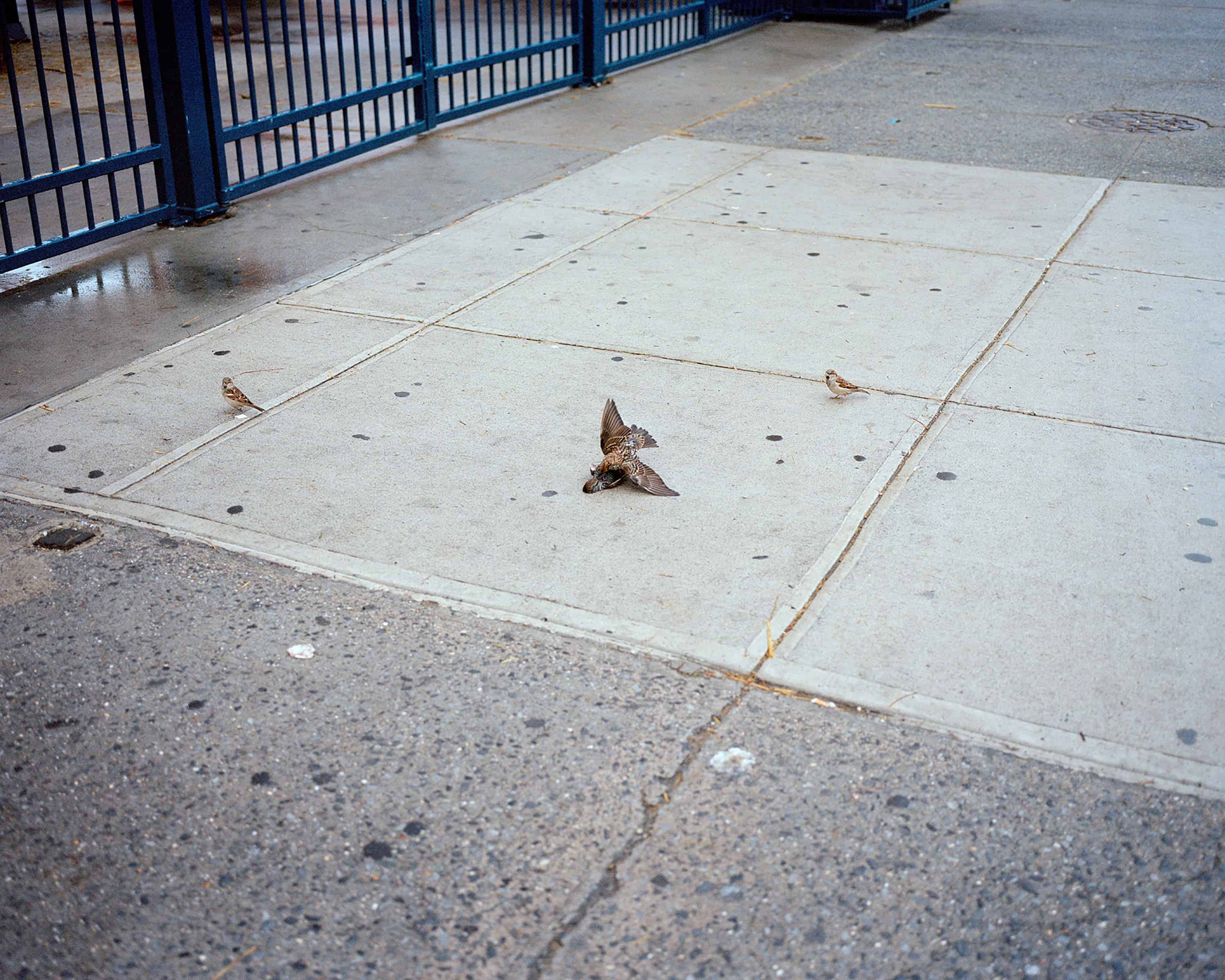


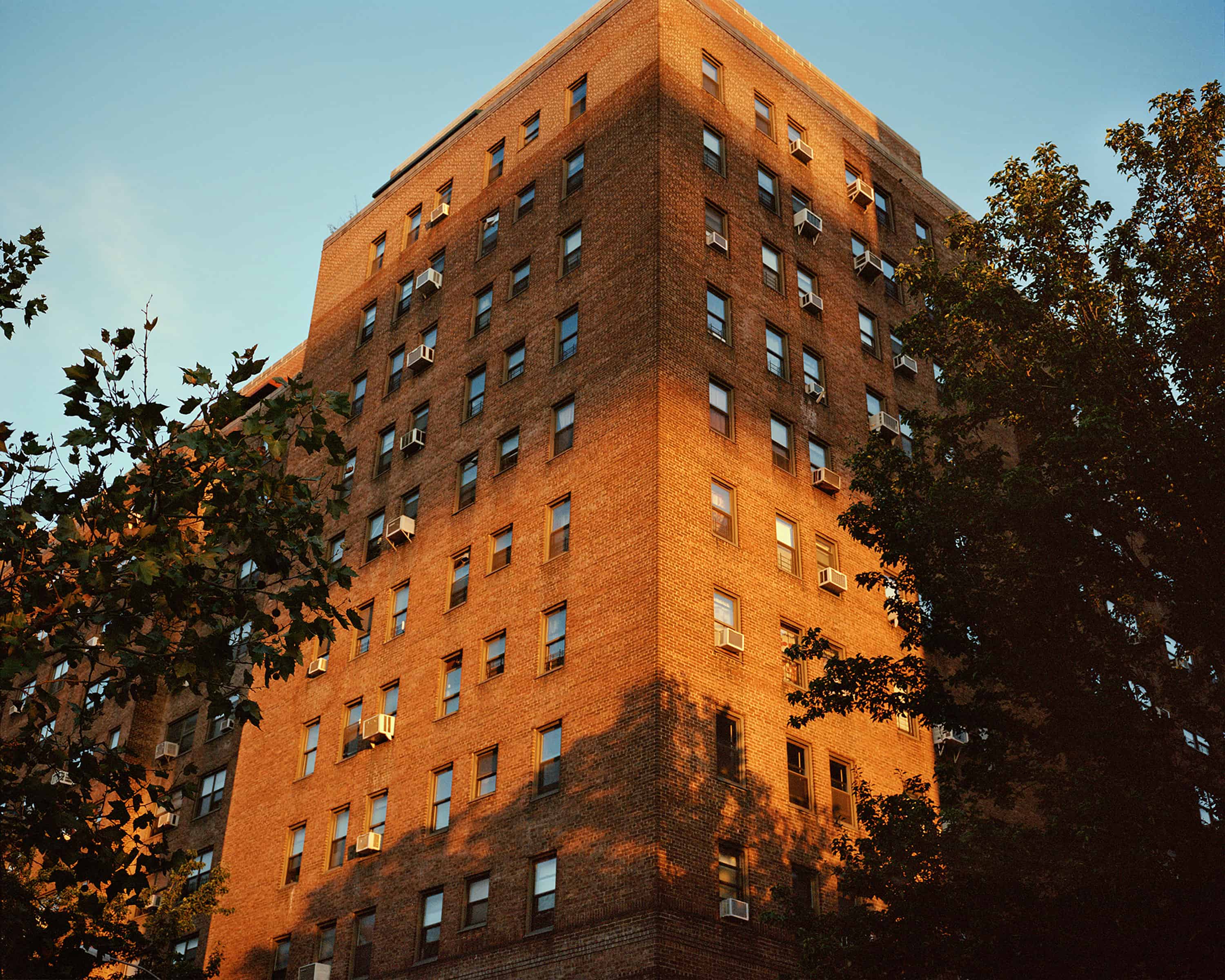


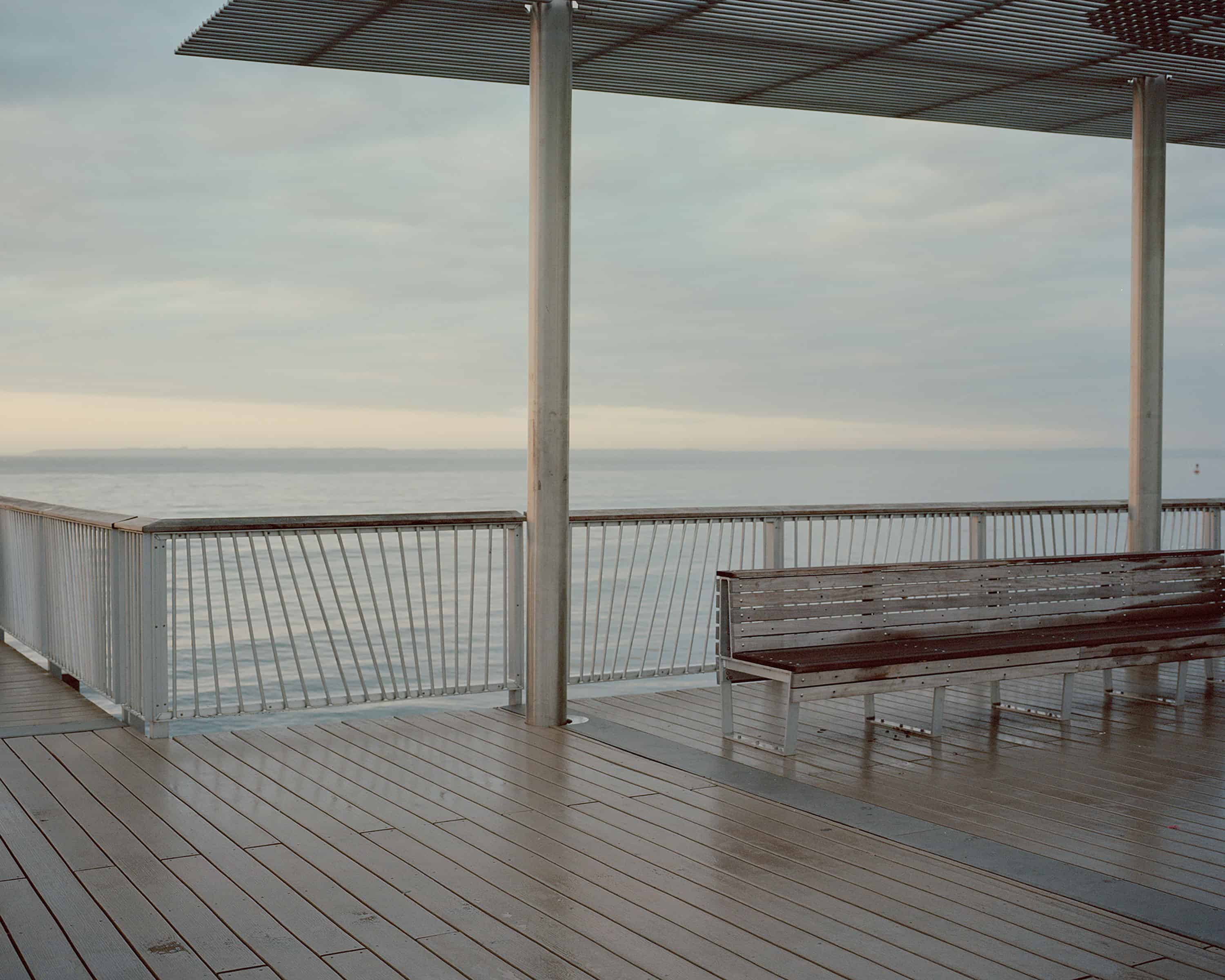

Mhm, it’s something I think about a lot! And then, what, as you were going through school, did you have a clear idea as to what kind of career you wanted to have, or what you wanted to do when you came out?
I had no idea. I just knew that I loved taking pictures, and I would photograph my friends a lot, and I would take a lot of really embarrassing moody self-portraits. The high school dark room was my domain, I think I was one of three people in a school of 3,000 that even knew that it existed and used it, so it was like my little zone. But, I don’t…I don’t remember, but I don’t think that I had a very clear idea. I just think that I had to keep studying and that I would figure it out.
Do you have a clear idea now?
No, not really, I mean, kind of. It changes so much. I know for one thing that I don’t want to be only working in photography, and that’s kind of how my life was starting, well, has been, for the past few years. That photography is my main passion, but it’s such a solitary medium that I kind of need to work with people, too, which is why I’ve started to do a lot of video work, some curatorial work, but I think now, moving forward, I would definitely love to do more editorial work than I have been. And then also, focus more on book projects and fine art things, stuff like that. But yeah, I’m kind of in the season of, it’s…starting to need to be more proactive about shaping a career that I want, rather than just letting things come to me and responding.
Right. Why do you feel like you need to be more proactive? Is it so that you can be more focused in getting what you want?
Yeah. I think you can float along in a place that’s comfortable, forever. But that doesn’t mean that you’re going to be creatively doing all that you can do, growing, you know. It just feels really possible, so I just need to do it.

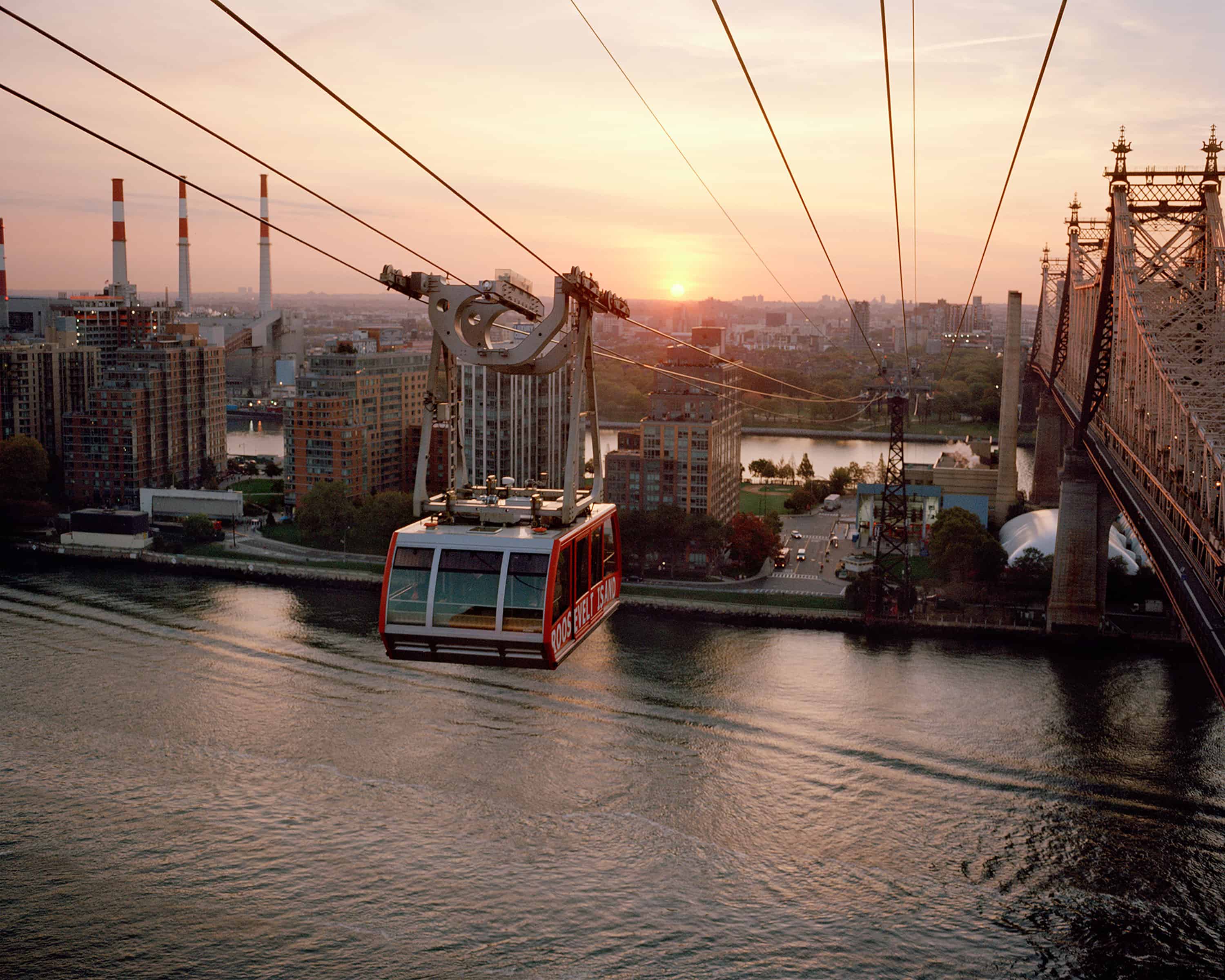


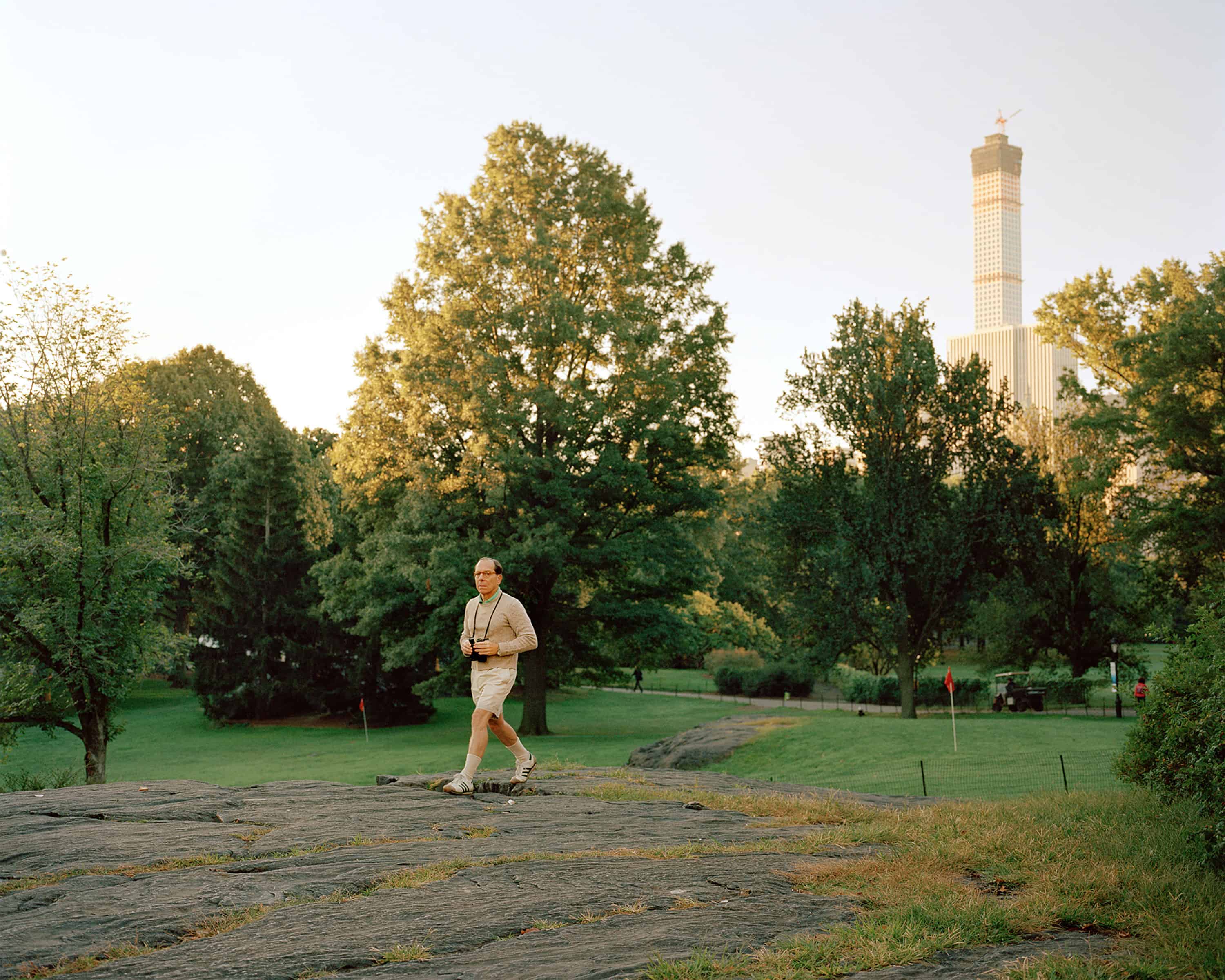

Is there an artistic progression you want to achieve? Are there things artistically that you want to do?
Yeah, definitely! I think, I mean, my process has, to this point, been shoot a lot forever and then figure it out later, figure out what I’m talking about later, which I think is how I want to continue to work. But pretty soon, I need to…you know, soon enough, I need to sit back and look at what I have accumulated in the past couple of years and see what projects are in there, and be a little bit more proactive about filling in the holes. And also, stylistically, I think I shoot a lot in a way that’s very familiar to me, and I would like to either find or work within some aesthetic where I’m not so comfortable, and see what comes out from there.
Do you have a particular aesthetic in mind that you want to explore?
I mean, that’s the thing, I don’t think I’ll know what it is until I find it. I think maybe it’s working a little bit, either working a little bit more in the abstract, or more lyrically, or developing my portrait work a little bit more. Not shooting street scenes from such a distance, that sort of thing. I’m kind of constantly self…what’s the word…
Analyzing?
Well yeah, just looking at what I’m doing and thinking about how I can make it more interesting. But then when I shoot, I don’t really think about that, I just shoot.
Right.
Self-criticizing, that’s the word!
Aha! That was my second option. Do you find that you are really focused on honing your style?
I wouldn’t say it’s honing my style, it’s more like breaking my style, and figuring out a way to take it further. Or make it a little bit more specific. But you know, the way that other people perceive your work is always so different from the way that you perceive your own work, so it’s possible that the things that I’m…that I’m tired of, or that I feel like I’ve explored pretty thoroughly, other people think it’s interesting and fine.
Who cares about them though?
Yeah, who cares!
They’re not making the pictures!
Yeah! But yeah, I think also, subject matter-wise, making more work that’s more personal has always been more fulfilling, so doing more of that.
Are you conscious of that in a brand sense as well?
Yeah…well, which part?
I mean, of having that personal work, of being specific in your work.
Yeah, I think so. I mean, I know the projects that I respond to by other photographers are always the personal projects, generally. Unless their aesthetic style is so unique and exciting that it’s interesting the way they look at anything. But for the most part, when I look at other people’s work, the stuff that really gets me going is whatever is the most personal.

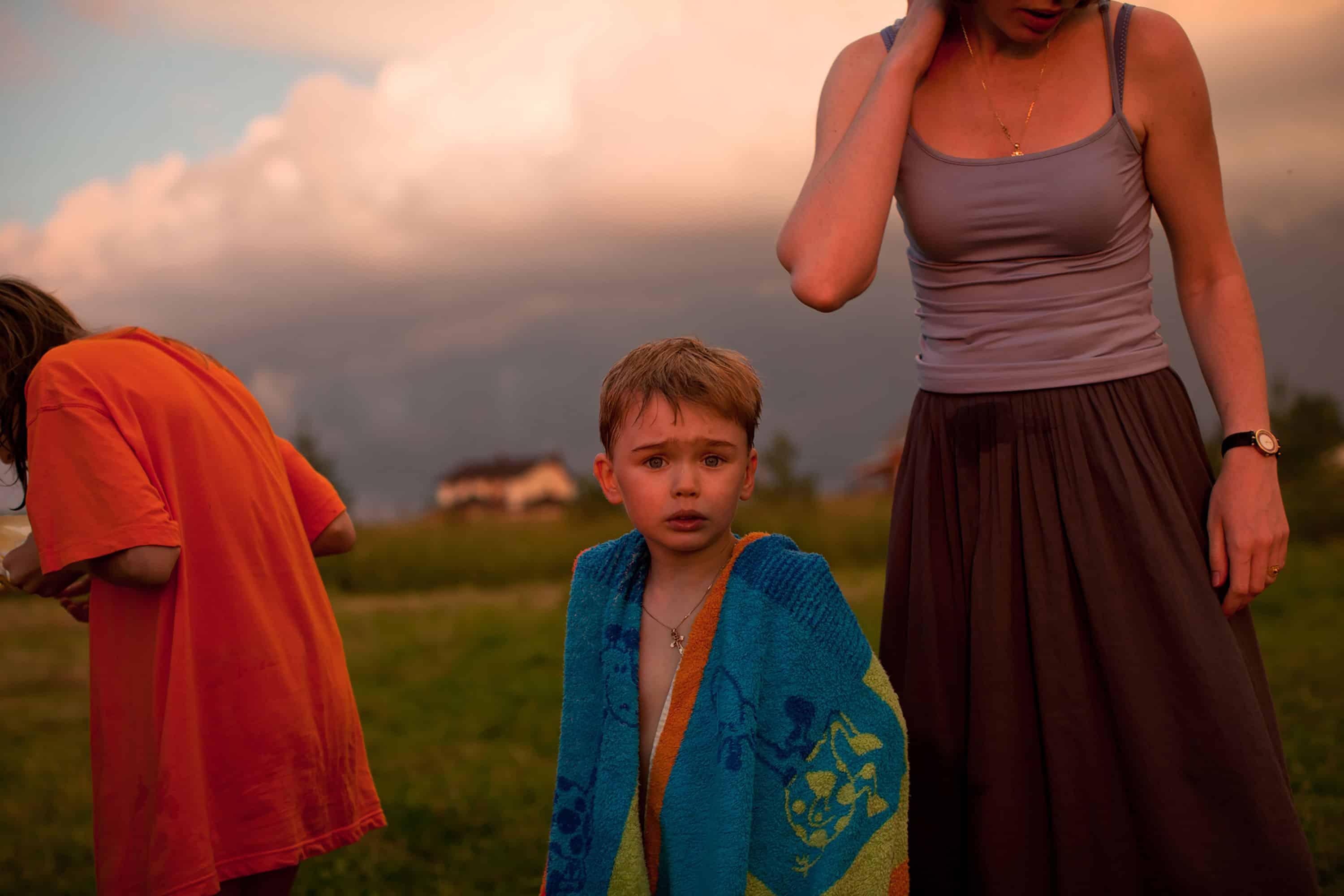


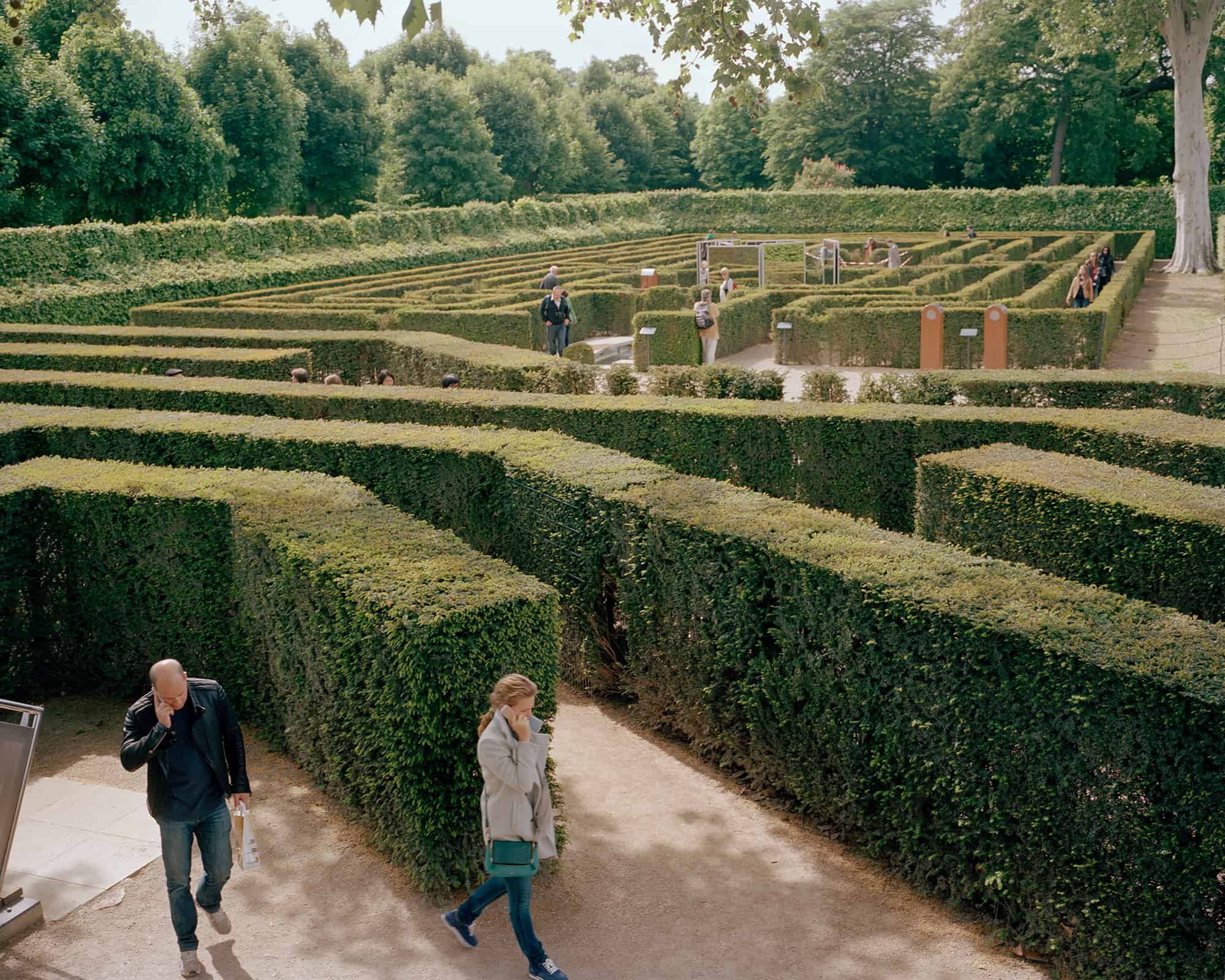

When you say, people whose work is so kind of idiosyncratic, is that something that you aspire towards? Do you think about becoming a very idiosyncratic photographer to the point where people will notice your work and know that it’s your work. Is that something that you think about?
It’s something that I think about kind of generally, but when I’m shooting, I don’t think about that. Because the only way that I know how to shoot is the way that’s natural to me, and so I would hope that in the grand scheme of things that would lend itself to a particular style that’s telling of my work. And I think it generally does, that’s the kind of feedback that I get. I don’t think that I would want there to be such a degree of same-ness that people will always know what they get when they hire me, you know. I think knowing…it’s good when a client knows what the particular world that that photographer is in, or works in, or what are their particular aesthetic interests are. But I think that being too specific is not…too much of the same is not that interesting, to anybody. I would like for a brand to kind of develop on its own, without me really controlling, “well I only shoot this one way,” you know?
What do you think the benefit of art school was for you, from an artistic standpoint?
Oh, there was so much! I mean, the main benefit was: pretty much every single person that I work with now, I met at school. And every job that I’ve gotten since school has been within one or two degrees of separation from those connections. My entire community and my entire world stems from those people. And that shared history. I’m really happy that I came to New York for school and not afterwards. I think it made it a lot easier to make it my home while I was in this structured environment, so, you know, it’s really crazy and scary to move here, so I’m happy I did it when I was 18 and everything was scary and crazy anyway.
Hahahaha. What was it that made you choose New York?
A few things. When I was 16 I did a pre-college program at SVA (School of Visual Arts). It was something that I applied for and got picked for, and I was really excited. Although it was really funny, because it was this program that they picked 12 people or something from across the country, and 10 people went for free and two people had to pay, and I was one of the two people that had to pay!

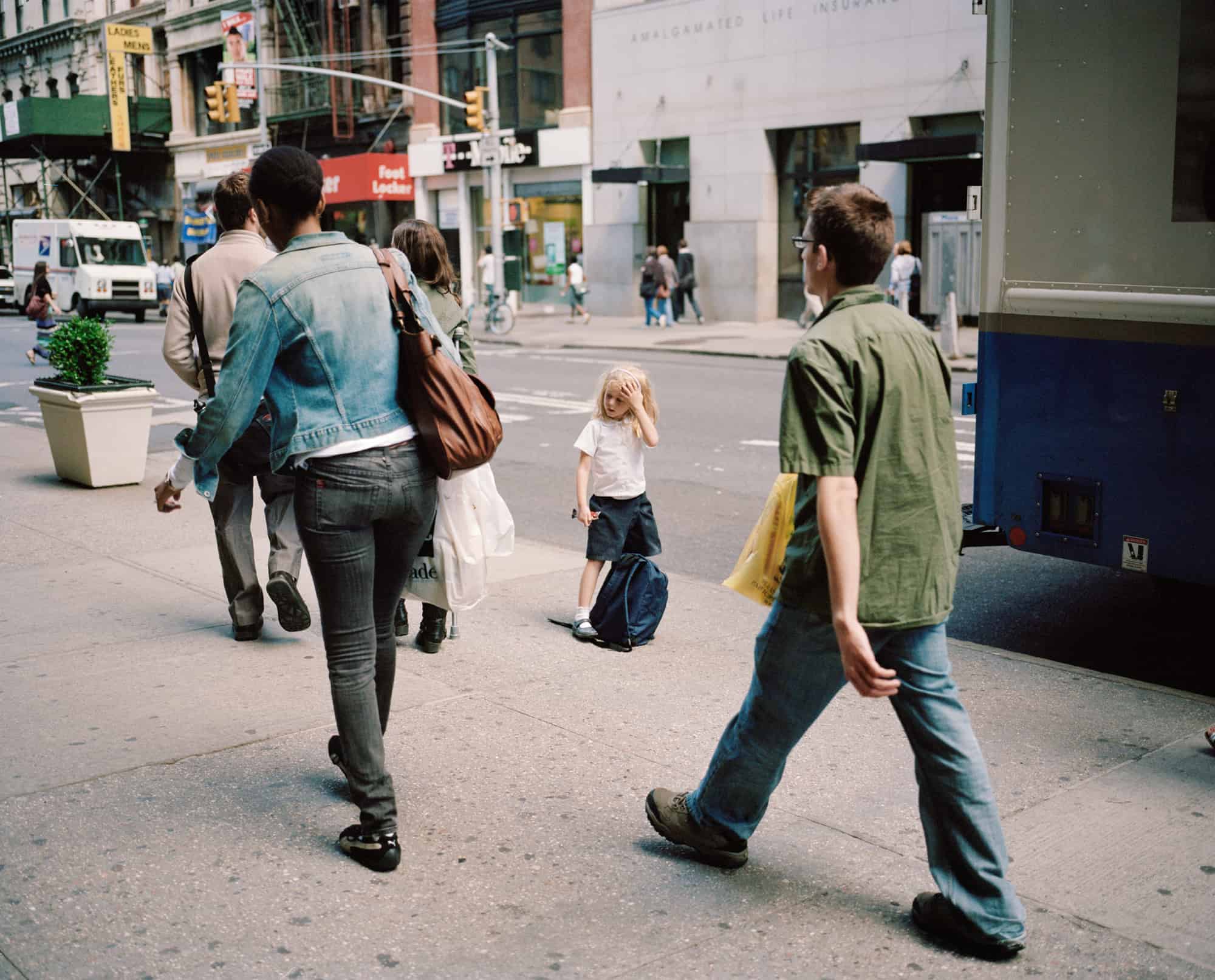


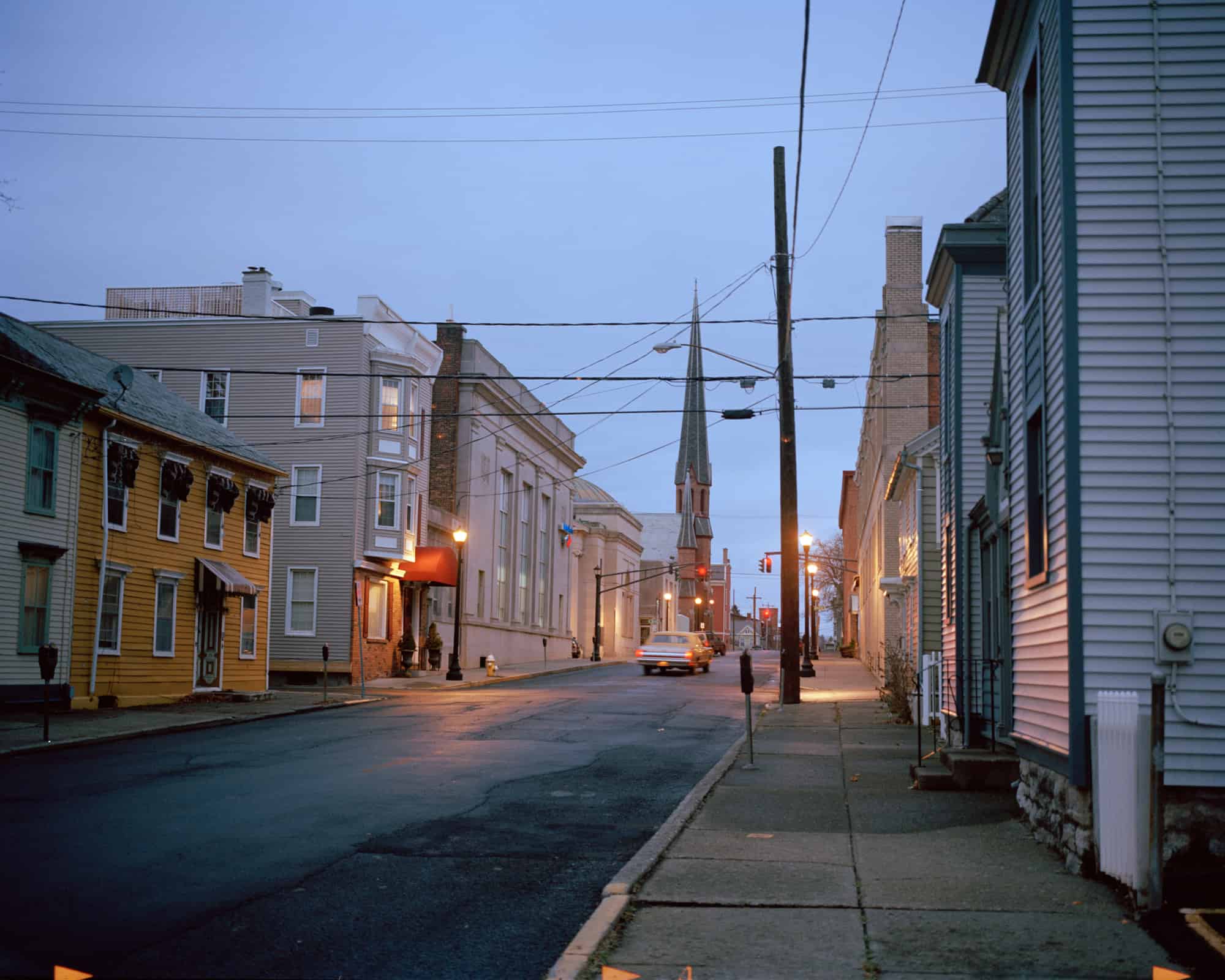

How does that work??
It was really weird! It wasn’t through SVA, it was through this magazine that doesn’t exist anymore. And so I had to kind of really convince my mom to pay for this thing and send me to New York for three weeks by myself. Which somehow she did, or I was able to, I think mainly because I kind of gave her no other option, it had to happen. I was like, “clearly they kind of want me, so I’m going to go.” It was just the craziest three weeks of my life. I lived alone in a little teeny tiny closet dorm room, and in my fridge was just a lot of Arizona ice tea, Ritz crackers, and a lot of film.
Breakfast of champions.
Yeah, breakfast of champions! And I was, yeah, it was a really amazing program. I just entered the dream of New York big time, to the point where when I came back to Florida, which is where I was going to school, I had a really hard time for those last couple of years, and I was just waiting to go back. But then, when I was applying for schools, I had some sort of crisis where I completely forgot what I wanted to do and where I wanted to be and was so worried about not getting accepted anywhere, that I applied to 17 schools.
(long whistle)
Yeah, I went crazy! I think, kind of, the ambitious, prestigious idea of being at an Ivy League school was just really an exciting possibility. And then I didn’t get into any of those, which made sense. I got into NYU, and it was like the perfect crossroads of an art school that’s not just an art school, but it’s also within this grander university. And it was in New York, so it was all of the things that I wanted, kind of combined, and I didn’t even quite realize that until I went. So yeah, I think, I mean, as a photographer, it didn’t make sense for me to be in Maryland, you know? I might as well just go to New York and do the thing, and we’ll see if I fail, it’s fine, I would have been 22 or something.
So the community was a big advantage of going to school.
Yeah.

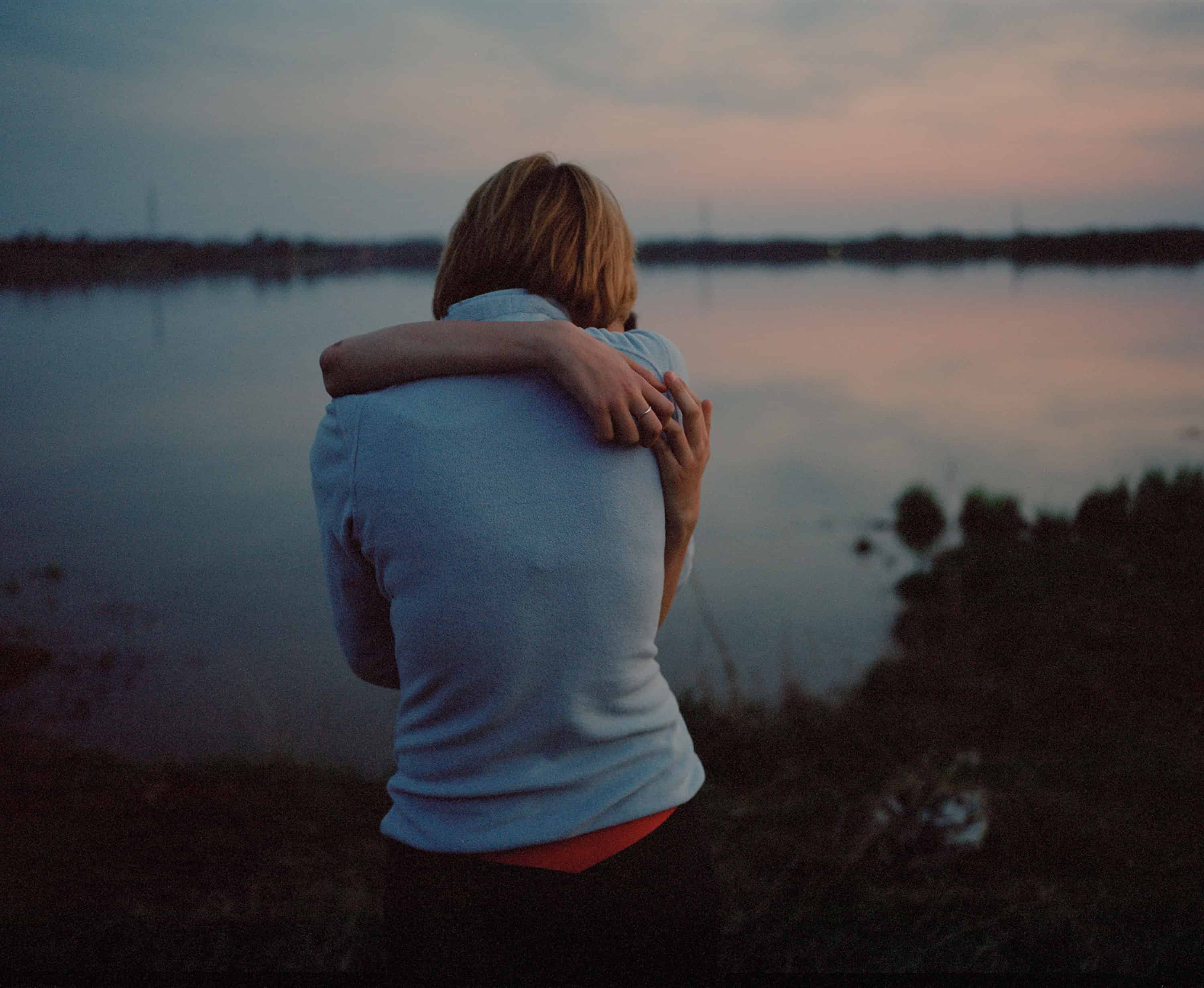

What else do you think you got from it?
The photo program at Tisch was pretty heavily fine art-based. I had a lot of really amazing professors who taught me how to talk about photos, and how to write about photos, and that was the vocabulary that I…there just really wasn’t a way for me to develop earlier. And that was super exciting. I feel like it’s feeding into a lot of the community work that I do now, and the curatorial work that I do now. I’m really happy that I had that beginning of a photo education, because I think that helps me navigate the kind of work that I make. The kind of work that I like. It helps me critique my friends’ work. It was a great starting point for that.
How’d you find yourself in video?
So two friends of mine from NYU, Jon Seale and Dan Knobler, started this company while they were still in college called Mason Jar Music, and it’s an audio production company. And I became really involved in the video portion of the company. They have a series called “Mason Jar Music Presents,” in which we would take a song by an artist, composer friends would write a new arrangement for that song, we would find an interesting place in the city, or outside of the city, that kind of echoed the feeling of that song. We would film a large-scale, live performance, of the artists performing the song with an ensemble. So I, very early on, started filming those with a DP friend of mine, Andrew Ellis, and he kind of mentored me into the video world through college. It pretty much, I think the interest started with the advent of the first DSLR that shot video, the Nikon D90. I love that thing so much! It just was so fascinating to me, the kind of visual language that it allowed me to explore, so I would also shoot a lot of little personal videos when I would travel and stuff and edit those together. I had another collaborative project, called Pause Project, with that same friend who started Mason Jar Music, Jon Seale, where I would edit together a little video about a place, and he would compose music for it, inspired by it. So it’s just these little exercises that I developed a particular style in video through. And since then, we’ve worked on documentaries, and larger scale music shoots, stuff like that. I work a lot in music, somehow it happened.
What is it that appeals to you about video?
It’s just a lot of fun, and that’s the main thing. Primarily, I love arriving, I love working in a group. I love having this one particular thing that I do within the group, so there’s a particular way that I typically shoot. And then I’ll show up, I’ll do my job, I’ll give someone else the footage, and I’ll leave at the end, and then somebody else makes it into this beautiful thing, so it’s really nice to not have to deal with post. And still be able to contribute something worthwhile. And just the collaborative spirit of video shoots is really exciting to me, and being able to work with a musician, or really get to know a subject that we’re making a documentary about, it just throws me into a world that I wouldn’t normally take myself into.
Did you notice a lot of crossover between photography and video in terms of skillset and style? Or did you have to learn a bunch of new things that hadn’t really applied in photography?
Yeah, the thing that I had to learn was camera movement, that was really hard. Andrew, when I would first shoot things, he would always critique my work in that I shot it like a photographer. In that, my frame is sitting there still, and then things are happening inside it, and I think that camera movement is something that I’m still learning. But otherwise, the process for me was similar, in that on a video shoot I’ll typically do the long lens, detail work. And the process of that is just about falling in love with what I’m shooting while I’m shooting it, and really feeling the rhythm of what’s happening. And when that really locks in is when it really works, which I think is similar to when I shoot a portrait or something. Like, really locking in with the subject and something kind of out of body is happening.
Do you look for inspiration for video in other films or television or advertisements?
I don’t watch a ton of stuff, but there are…I’ll go and see a Terence Malick film, or something, of course I’m going to be blown away by what’s going on. I’m very inspired by the video work of my friends. I think I learn more actively from them. Because I know them, because I can talk to them about what they do, it feels more accessible.

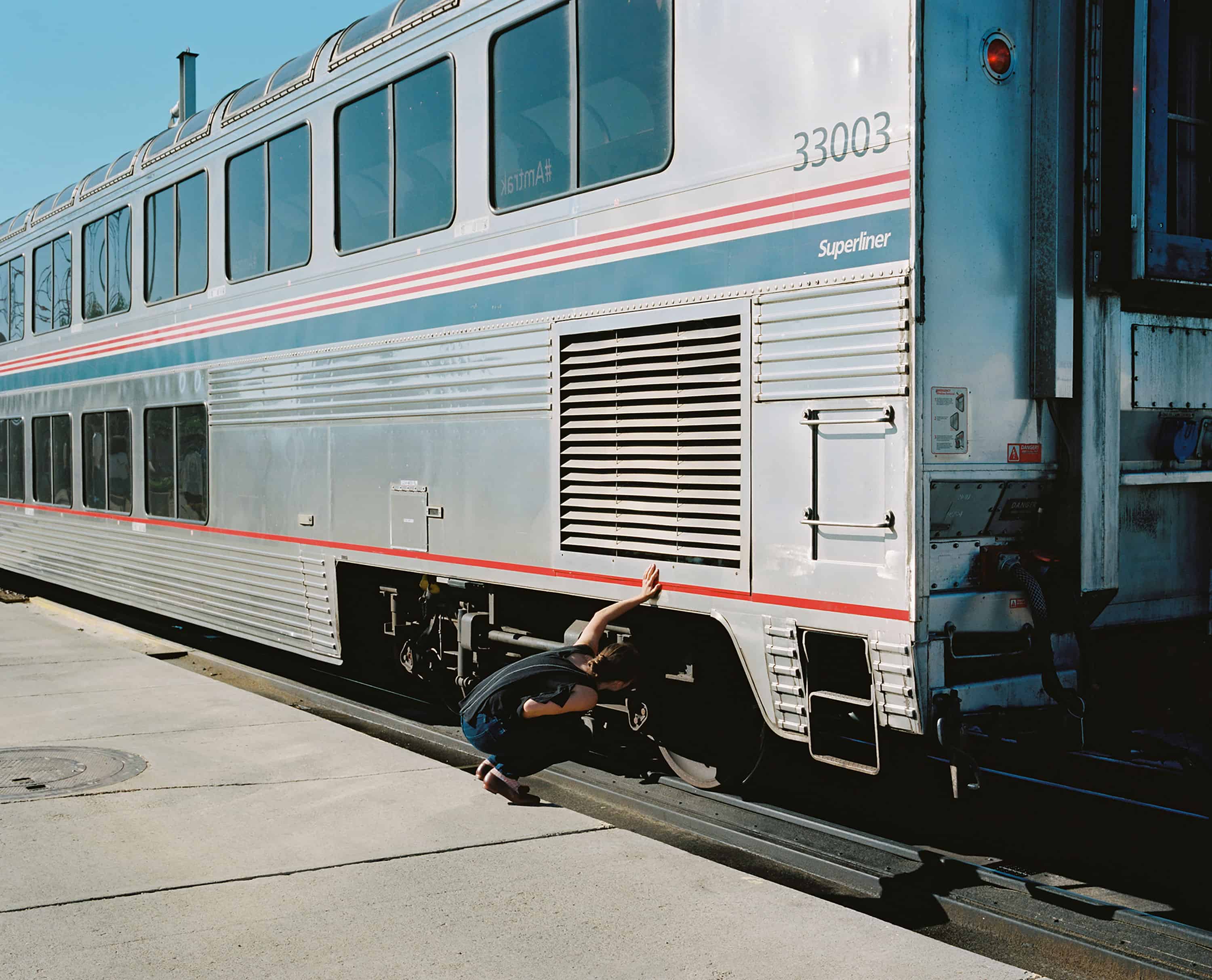


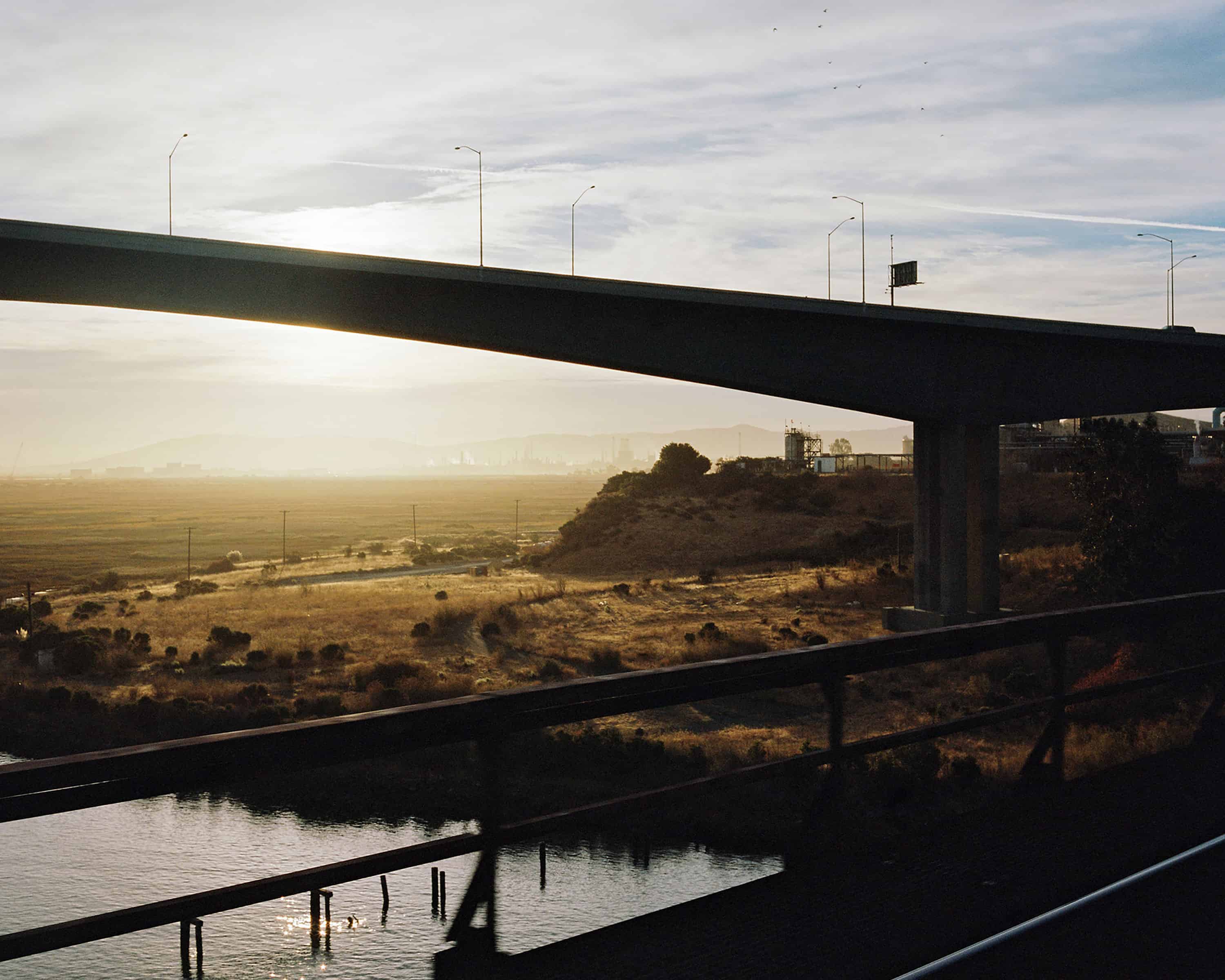


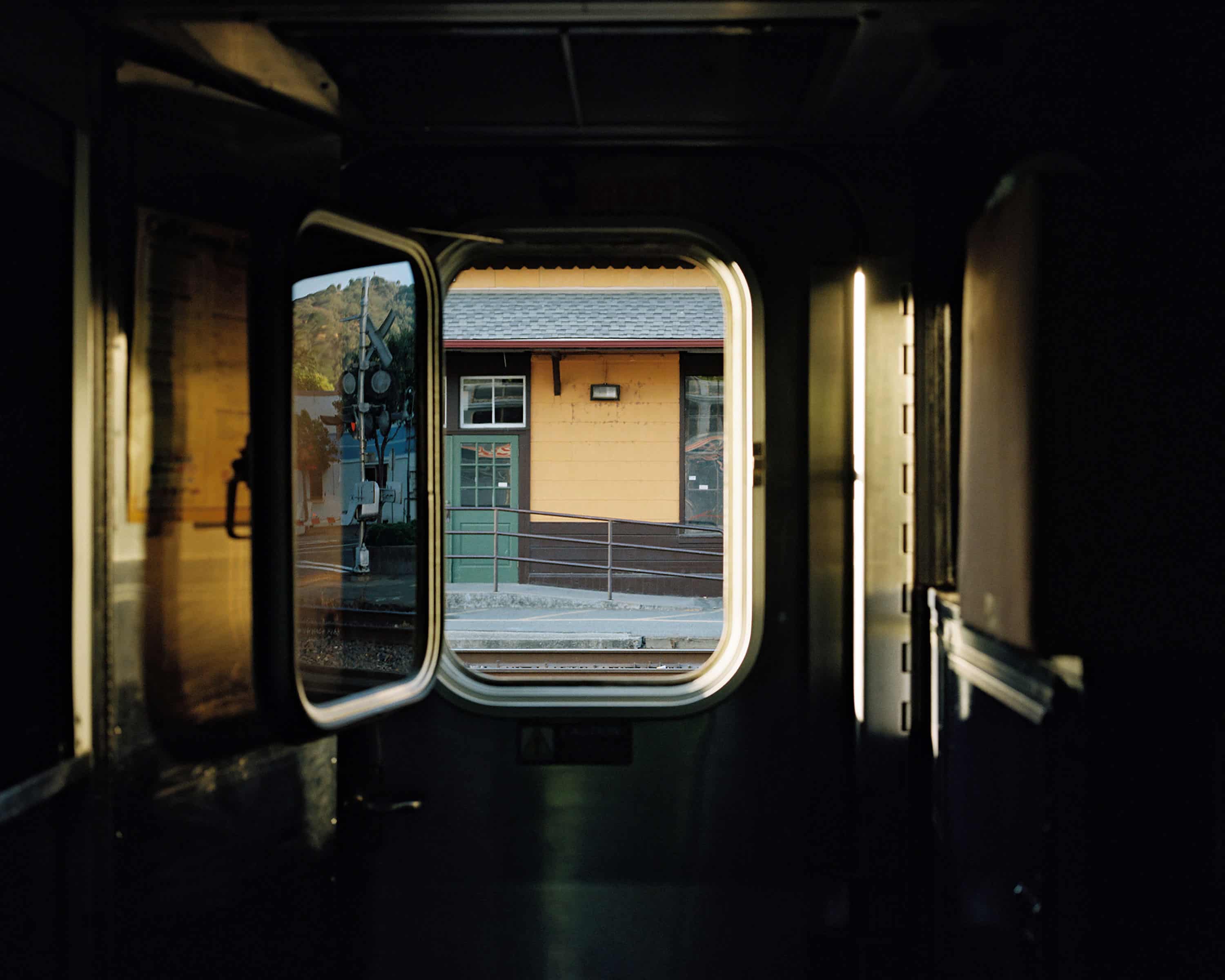


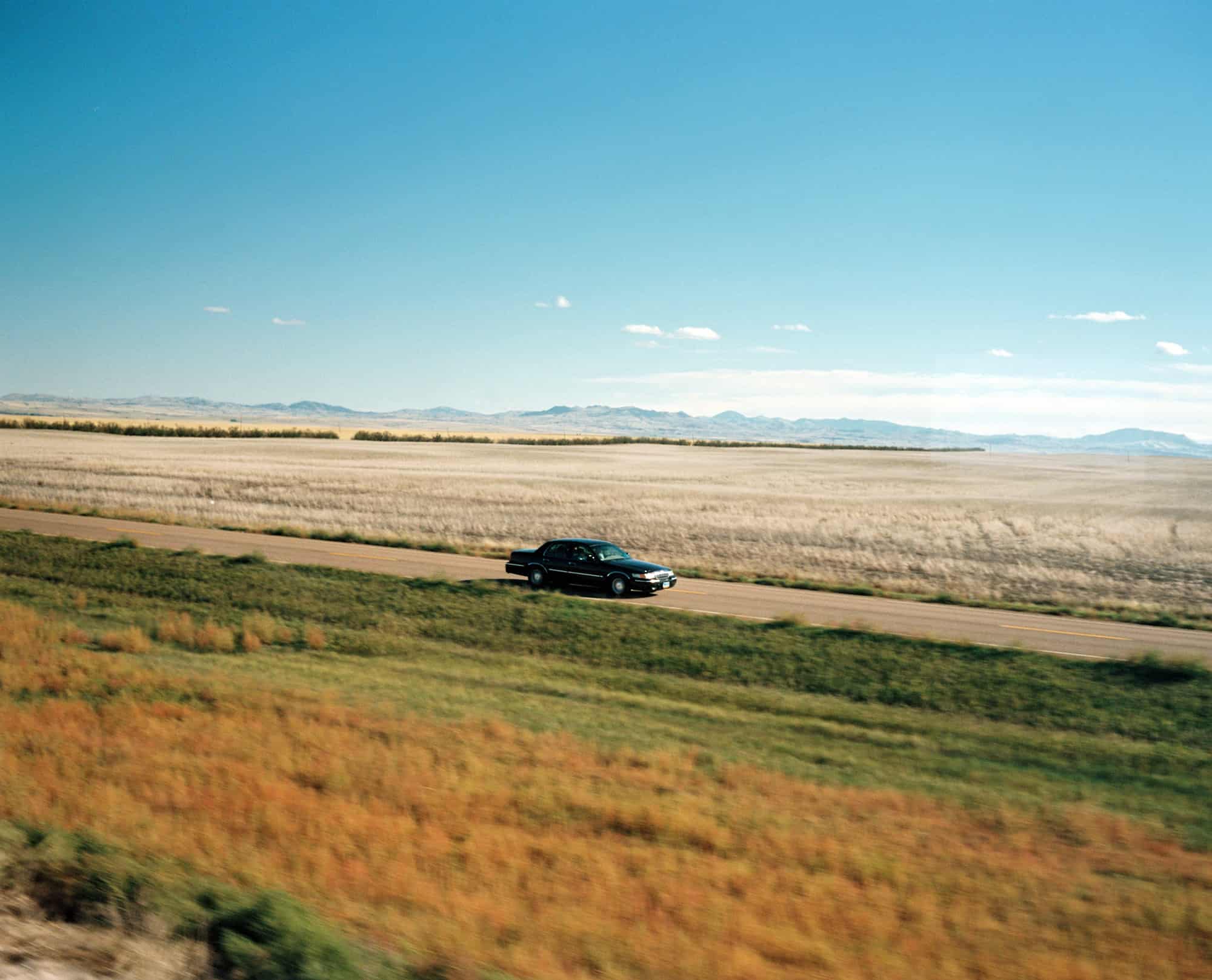


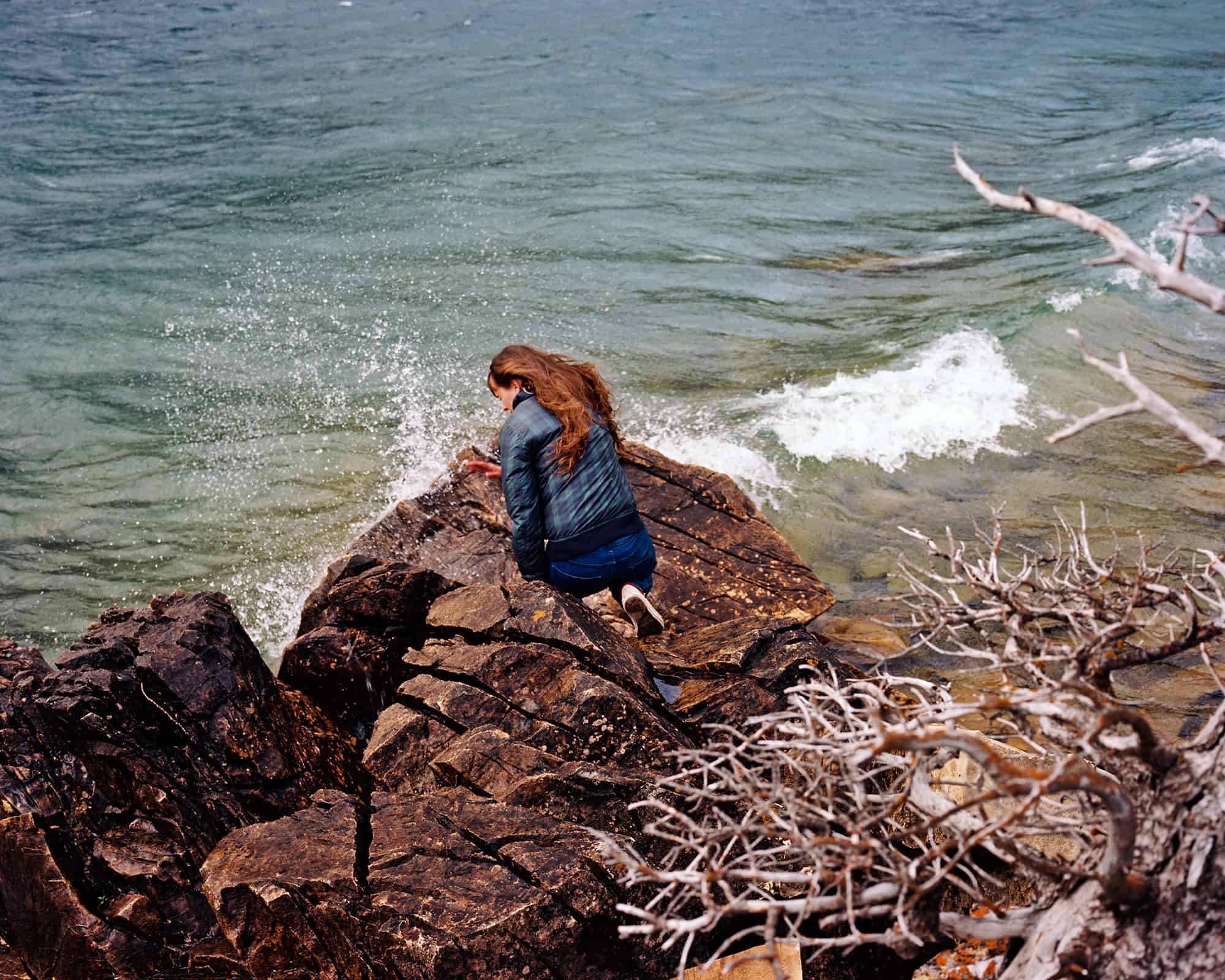

How was the Passport Express trip?
Well, there was actually a plague that was going through the trip that everybody got, but that I didn’t get until the day after I returned. So it was kind of perfect, the adrenaline kept me hanging on. Yeah, the train trip was really unbelievable! It is definitely unlike anything I’ve ever done. I’ve done…I was born in Moscow, my family is from there, so whenever I go, I take a train, a night train from Moscow to St. Petersburg to visit my grandparents, and that’s my favorite thing to do, ever. Period. So I was really curious what…
That beats a lot of fun things!
Yeah! I was curious what taking a train through America would be like. It was different, but it did have the similar kind of pensive romance that I really enjoyed on the train trips in Moscow. I saw a lot of the country that I had never seen before. We went to Glacier National Park, and that place just blew my mind. I fell in love with a mountain! I had a lot of really intense nature experiences that were, I don’t know, really special. And also, the trip was with forty other people. A lot of it was getting to know a whole new crew, and having this kind of unreal dream experience with them, which was really meaningful. I’m still kind of having trouble with real life a little bit.
It’s like coming back from camp.
Yeah, that’s exactly what it is. I never went to sleep-away camp, so I’m doing this really late.
It’s never too late to go to camp!
That’s what I’m learning.
There’s definitely a readjustment, especially when you’re in close quarters with people, and you’re sharing experiences that no one else is having.
It’s never too late to have a love affair with a mountain.

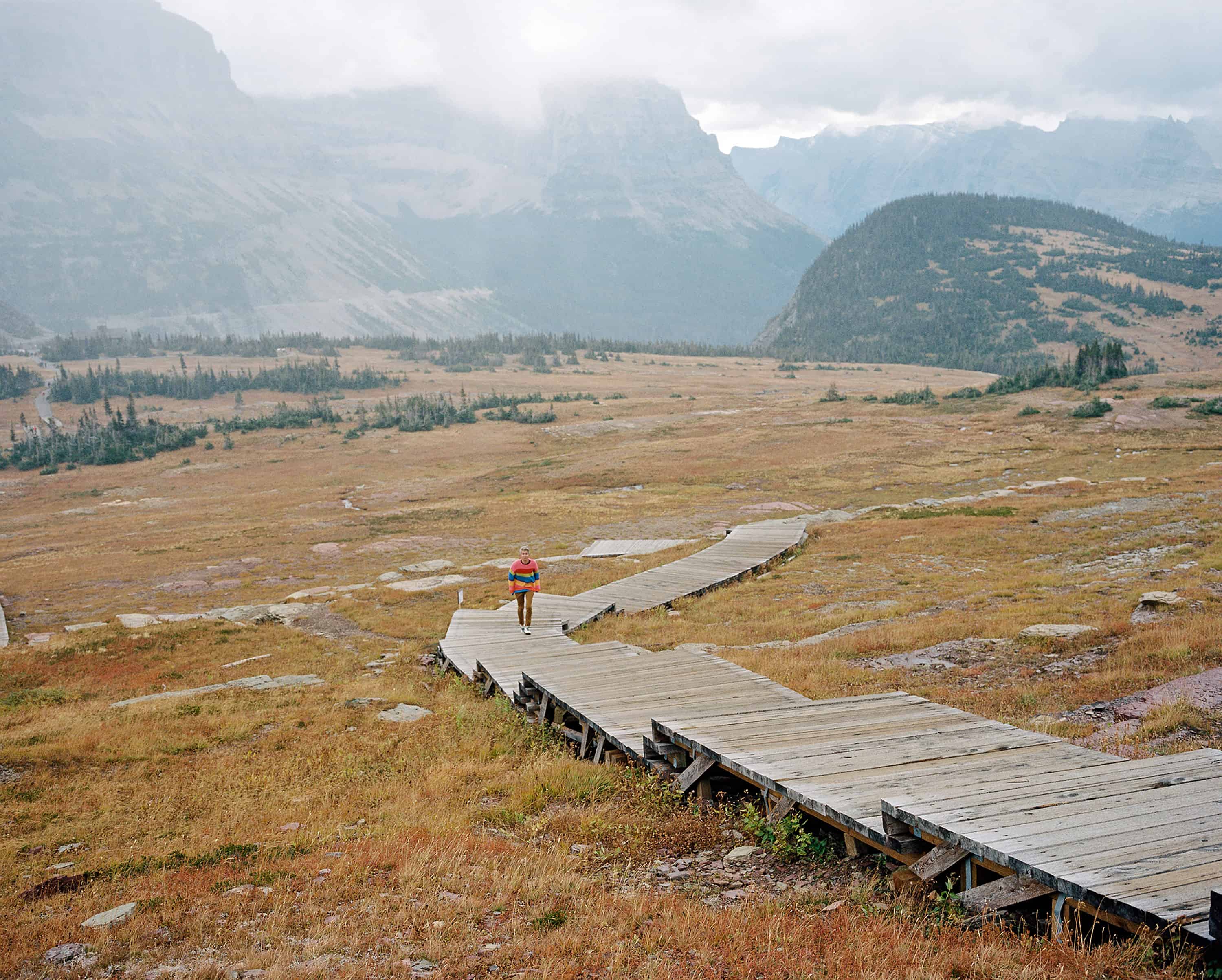

No, no, especially for the mountain! Which, you know, operates on a completely different time scale. It was basically a one-night stand, to the mountain.
Yeah, definitely but that’s fine.
Doesn’t make it any less meaningful.
I’m very open-minded, it’s great.
Hahahahha! What were you doing on the train trip? I’ve seen the website, I took a look at it, but they had a bunch of people from different disciplines…
There were train days, and then there were city days. So on the train days, there would be presentations by the handful of leaders that were on the group, about their careers and their lives and the presentations would kind of inspire conversations that would happen afterwards. And then there would be a lot of talking in small groups, and taking photos out the windows, and writing, stuff like that. Then we would arrive at a particular city and then have, usually, two or three days to explore. There would be visits to beautiful libraries and museums, and nature things, and it was all kind of…a lot of it was planned in advance, we didn’t have to pay for almost anything, so it was really living in this crazy bubble, magic bubble, of travel. It’s amazing when you don’t have to worry about the logistics of your life, how much mind space is freed up to connect with people, to make stuff. I’ve never been to a kind of long term residency like that, so that was a concept that I knew kind of generally, but hadn’t experienced before. It was great.
Did you have a sleeper car?
Yeah.
Sleeper cars are the best.
We had a sleeper car and an observation car that would get taken off of the train at every place that we would go, and it would just wait for us.
Whaaaaaaaat?
And then we’d get put back on the train.
And it would catch up with the train?
Yeah.
That’s crazy!
Yeah, you know, there was this girl named Ruthie Lindsey who decorated the whole place super-beautifully. There were, you know, string lights and succulents and blankets and all this comfortable shit! It was nuts. By the end I was overflowing with so much gratitude, I didn’t know what to do with myself. It was a cool thing. And I’m still waiting to get back all of the film from the trip, I haven’t seen anything!

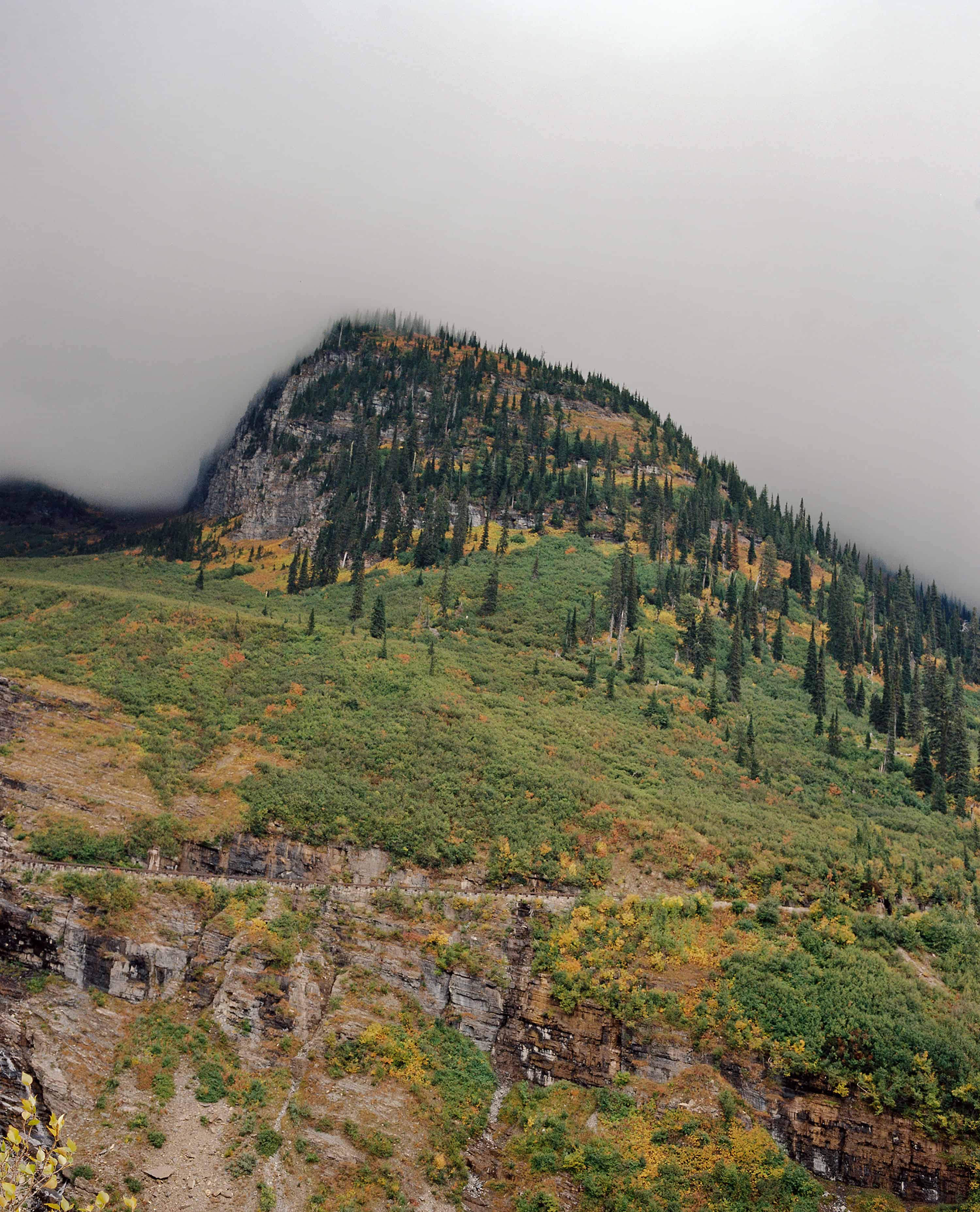

Oh wow, did you only shoot film?
Uh, yeah, for the most part, I mostly shot film. And then I would shoot things on my iPhone, just to satisfy seeing something. And there was a day where I borrowed a lens from a friend for the Canon, and it was really exciting because it was a new lens, but otherwise, I don’t know, there’s something about…I like shooting film on a trip, because then I don’t feel like I’m working. I feel like I’m not immediately self-correcting, I’m not, I don’t know, I think if I were shooting on my digital camera that whole time, it would feel like I’m covering it, like I’m covering an event, you know? So I didn’t want to do that, but we’ll see when I get the film back if I shot myself in the foot or not, but that’s generally how I like to work.
How many rolls did you end up with?
I shot like 25 rolls of 220 film.
(looooong whistle)
Which is really going to kill me, financially, but I don’t have, like, a smoking habit, so I allotted that money to the film instead. Like, everybody has their thing.
And at the end, you don’t get cancer, so that’s cool!
Yeah, it’s great!
You chose well.
I chose well.
I don’t really know anyone who shoots 220.
Well, they stopped making it this summer. Sooo…I bought the last of the stock in New York, and bought the last of the stock in San Francisco when I got there.
Oh wow.
Which actually isn’t that much, the remainder of it. But I shoot on a Mamiya 7 a lot, like on the street, so having to switch film constantly is annoying. So yeah, even with 220 becoming discontinued, it’s kind of further emphasizing this idea that I have of that I should just shoot it while it’s around, because in my lifetime it won’t be around anymore, so I might as well spend the money now.

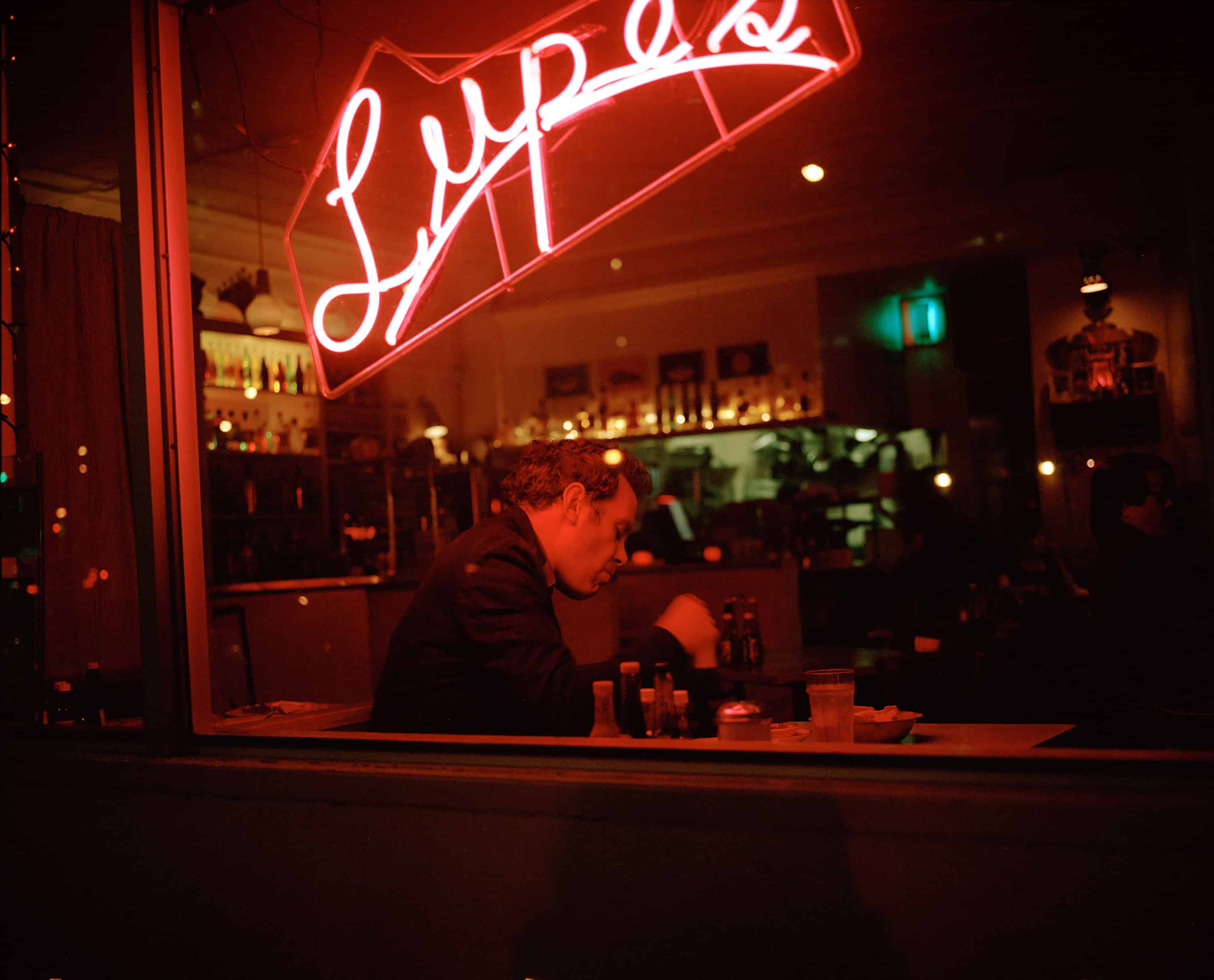


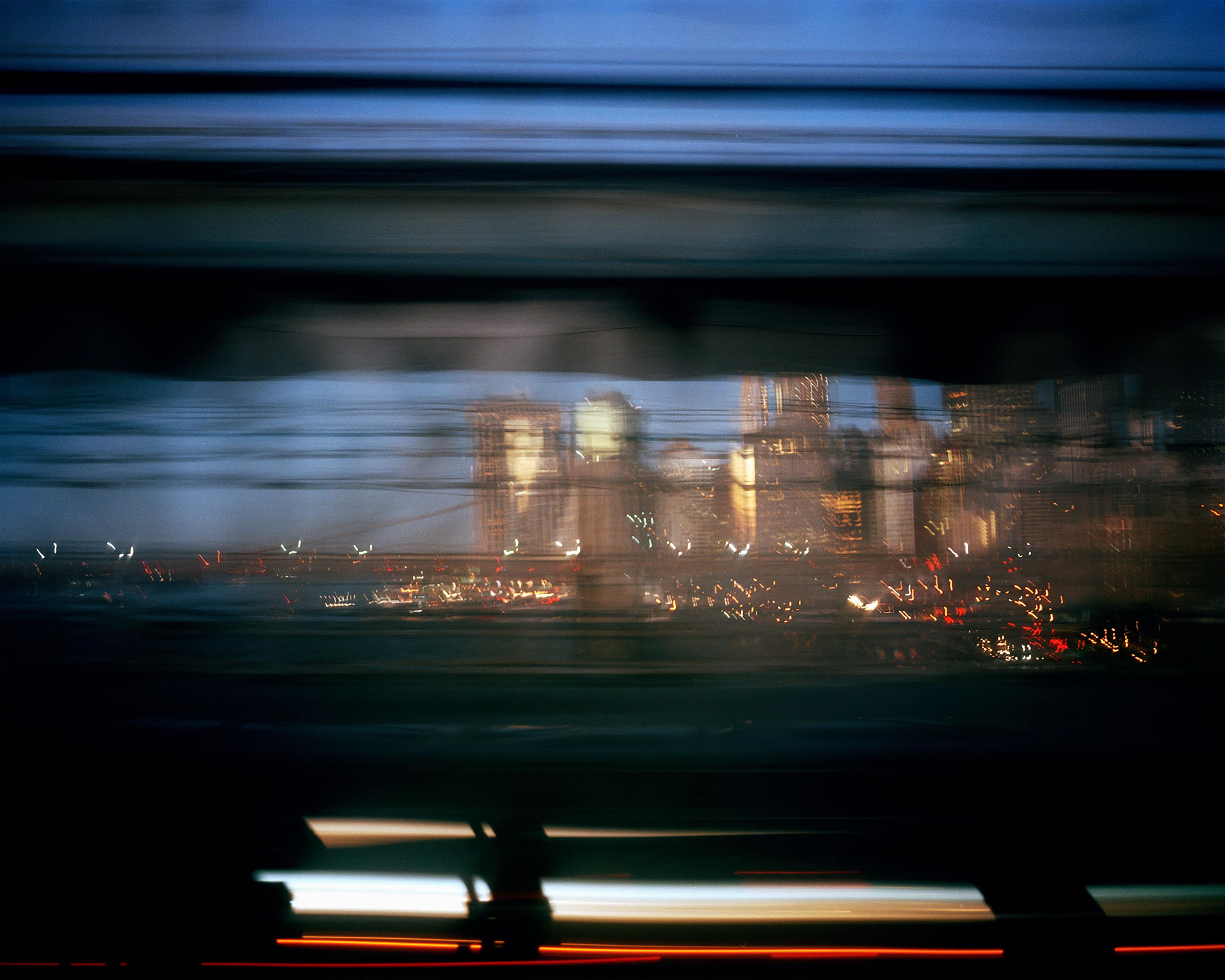

I think…this shall be my final question.
Oh my goodness…yeah, yes.
Which do you prefer: the process or the result?
Oh, cool, I like that question!
Thank you.
It depends.
Okay!
I guess I would say…the process, unless I really nail it! So usually the way that my process works, it’s kind of a closed loop, in that I will shoot out somewhere and get pleasure from shooting, and then I’ll get pleasure from waiting for the film to come back like it’s Christmas. And then it’s Christmas, and the film arrives, and I look at it and, you know, the feeling of looking at it and seeing if you got it or not is thrilling and crazy, and either you’re satisfied or you’re not, generally a little bit of both. Then, I’ll send my favorite things to my friends, I’ll just text it to them, and they’ll tell me, they’ll be like, “yay great!” and I would say, “yay great!” and the loop would close, and that’s it. I think why I’m bad at marketing myself is that I don’t then have this additional deep desire to put it out on the internet. So I’m battling that right now. But the situations in which the result has been more…has had kind of a heavier weight is when, for example, photographing my family or something. I will be shooting without thinking, and then several weeks down the line I’ll get the film back, and then the photos will tell me back something that I was feeling that I didn’t realize was in the photos. And I didn’t even realize I was feeling so concretely that it would manifest itself in the images, you know, that wasn’t what I was thinking about at the time.

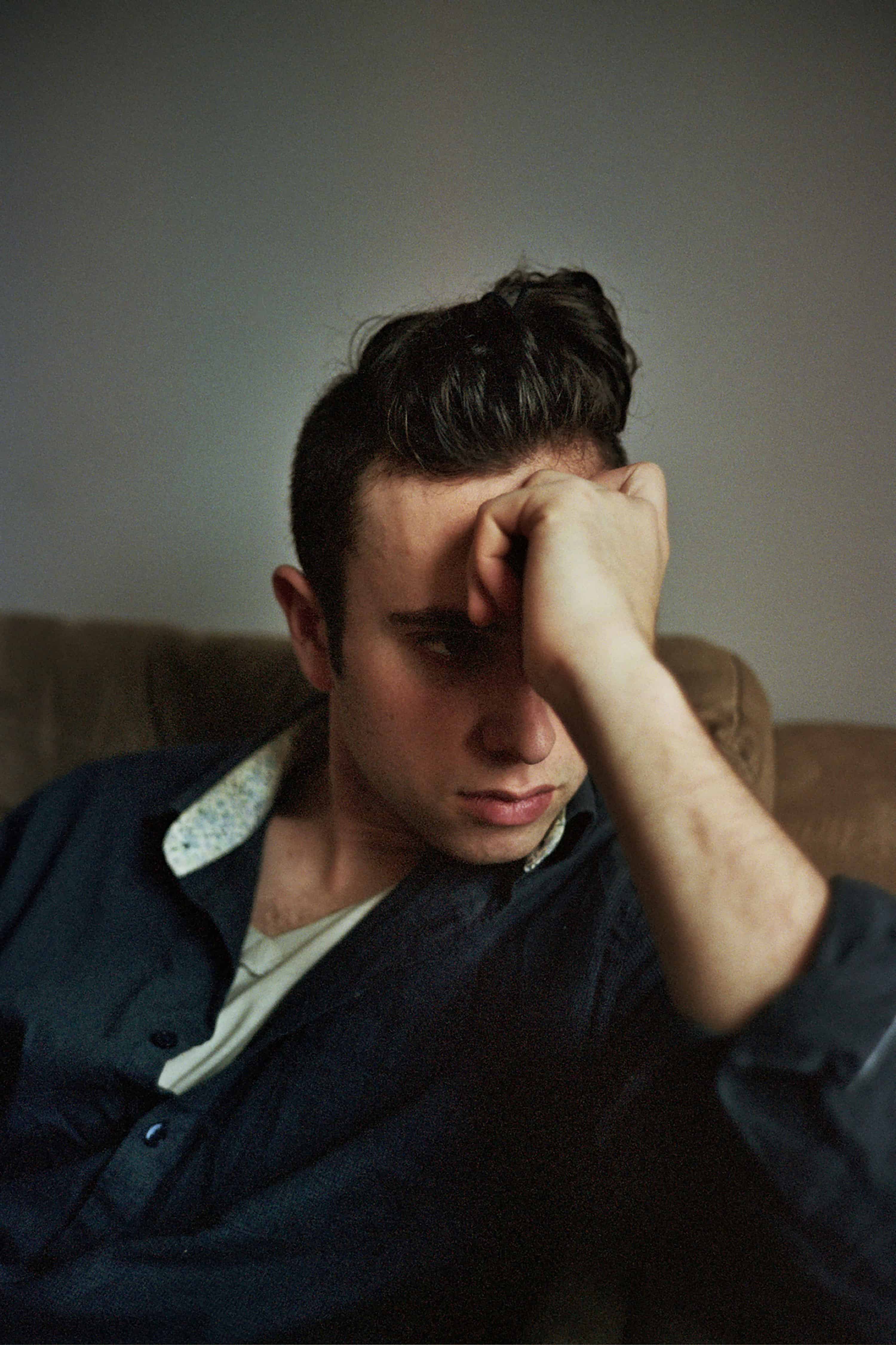


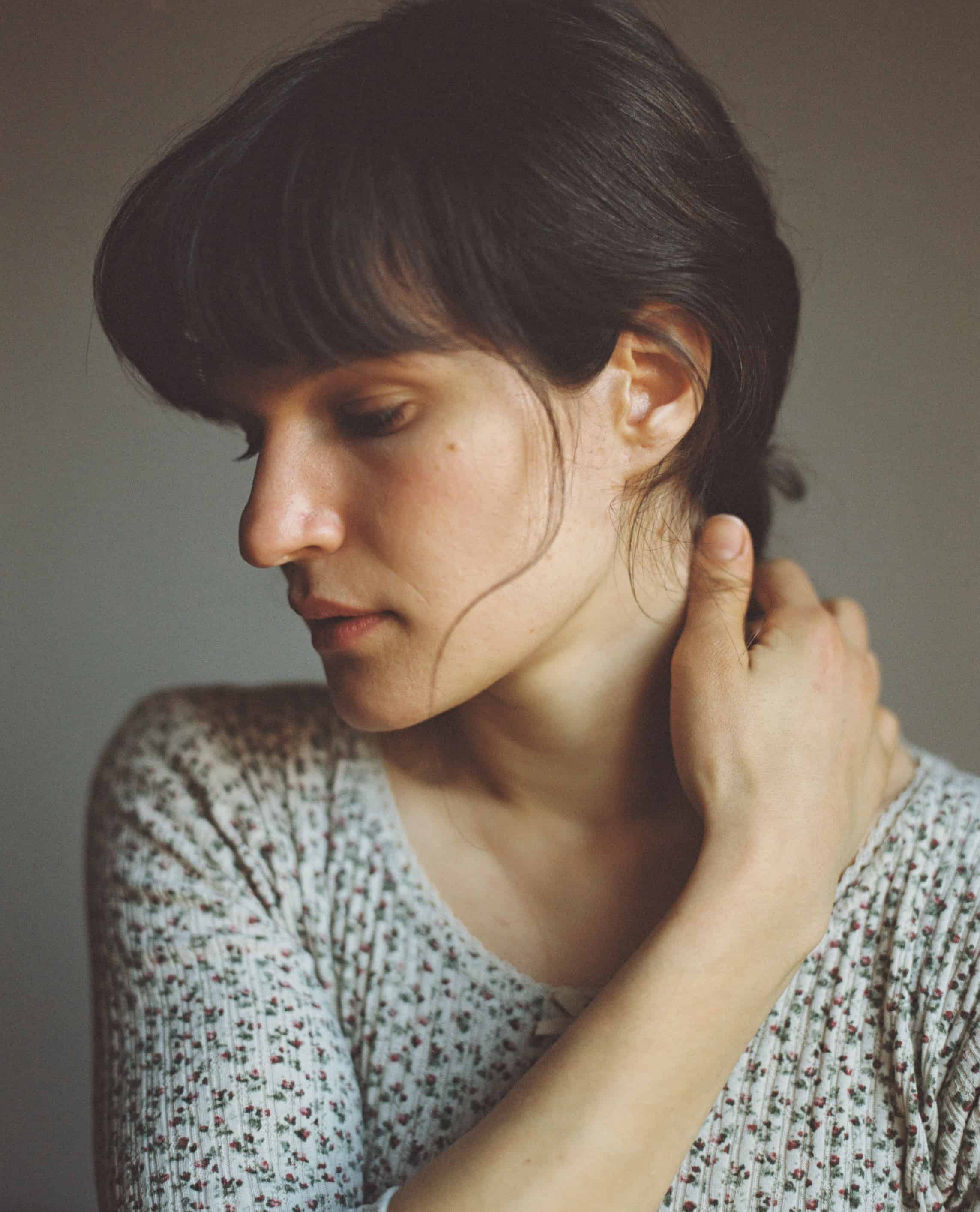

Right.
And the times that that has happened have been so trippy and amazing, that I think that’s a feeling that I’m kind of going after all the time now. Where I’m so in tune with a moment, that I don’t even really…that the photos tell me back what I was feeling afterwards and that it’s accurate. Like an amazing, crazy thing that can happen sometimes.
What does that look like to you in a photo?
It’s…I don’t know, sometimes there will be an element of criticism, or there will be an element of deep love, or both. Or there will be a tension in the image that I remember being palpable, in retrospect, at the time that I shot it. But by the time that I’ve gotten the film back, I’ve already forgotten that happened, you know? When I feel that, and when other people can read into that, too, then it’s like, “wow, awesome, I got it!” And then it actually feels like I’m doing something worthwhile and not wasting my time.

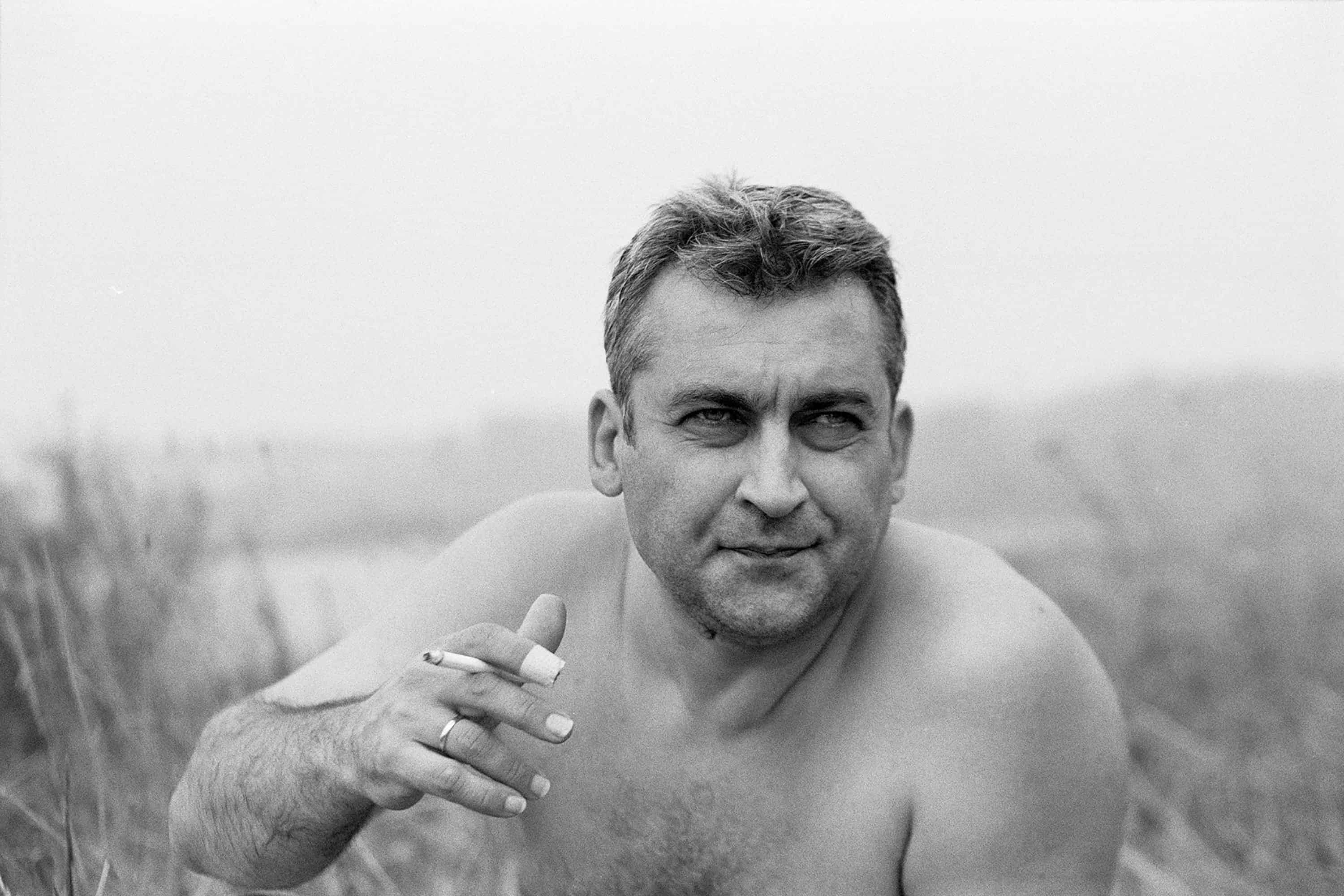


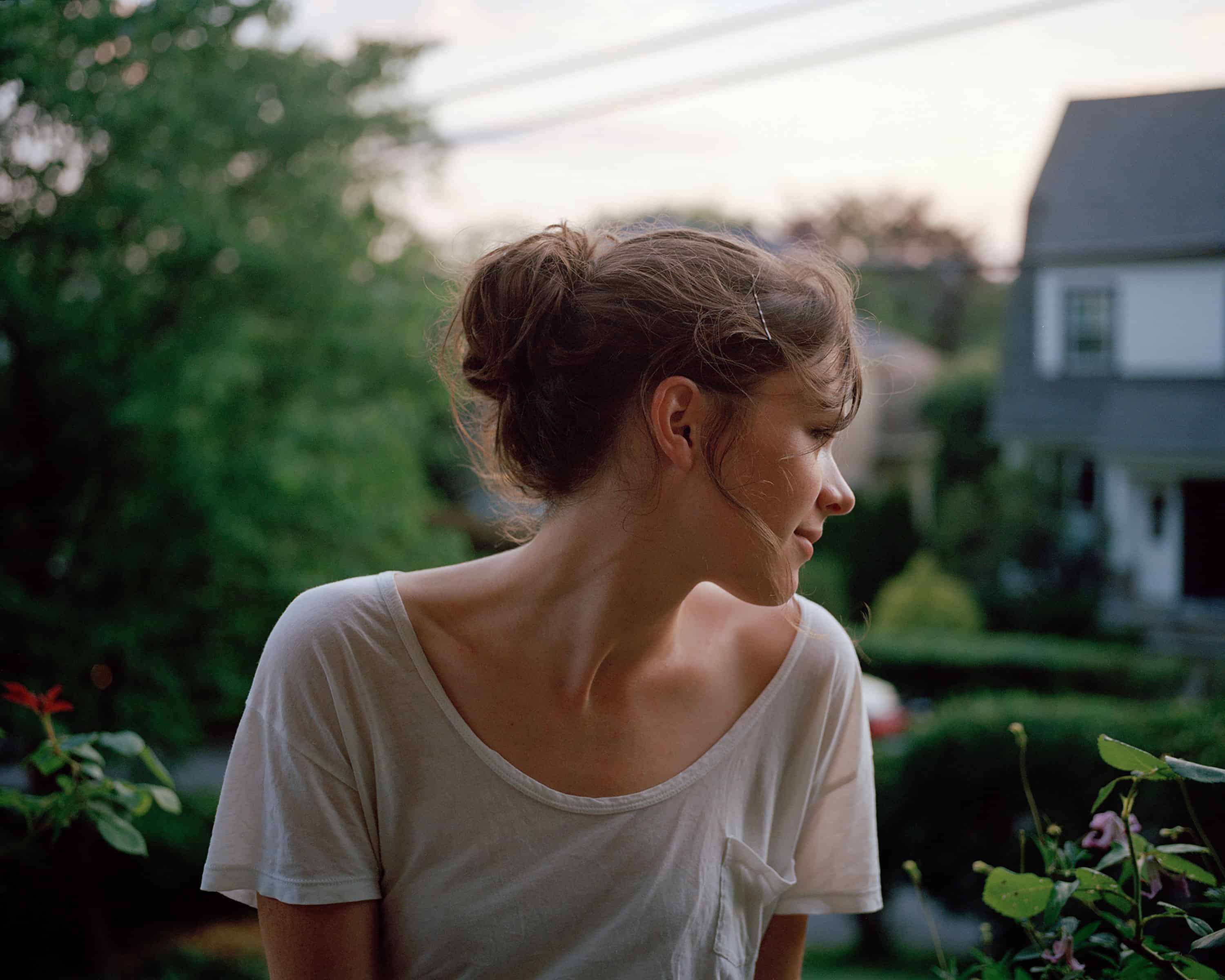

Do you see that as much in your commercial work as you do in your personal work? Or do you find that it’s exclusively in those photos of going to Moscow, or those photos of your sister?
I see it in my portraits, a lot. Well, not a lot, but more recently, I’ve been shooting more one-on-one portraits with musicians, it’s just what I’ve started to get hired to do more frequently. I really love that, because we can create this nice, quiet, meditative space, usually in my apartment, and there is this relationship that is formed over the course of the shoot, and we get to know each other over the course of the shoot. If my heightened idea of that person in the feeling that we exchanged during the shoot then comes out in the photo I get back, which happens sometimes for me, I think, then that’s awesome. Then I feel like I’m doing something right.
Do you talk a lot to your subjects?
Not a ton. I’ll tell them directions, you know? Like, I’m pretty specific about where I want them to look, and what I want them to do with their body and stuff. But I generally, those are usually just suggestions, because I find that people like being told what to do, it makes them feel more comfortable and makes them feel like they’re doing the right thing. But yeah, I’ll usually talk a lot in the beginning, and then shut up over the course of the thing. It’s just, like, talk enough to let the person feel comfortable being quiet with you later.
Is comfort something that you try to establish in a shoot?
Yeah. I mean, I think everybody has to be comfortable to make a good portrait. When it’s a portrait like that, when it’s an intentional…like somebody comes into my house to be photographed, I want them, you know, I want them to trust me and feel like they’re in good hands and that I’m there to capture something unique and beautiful and interesting about them. Because that’s what I’m there to do. So yeah, I think in that situation, comfort is important.
And I think that about does it!
Okay, well, thank you!
No, thank You!

